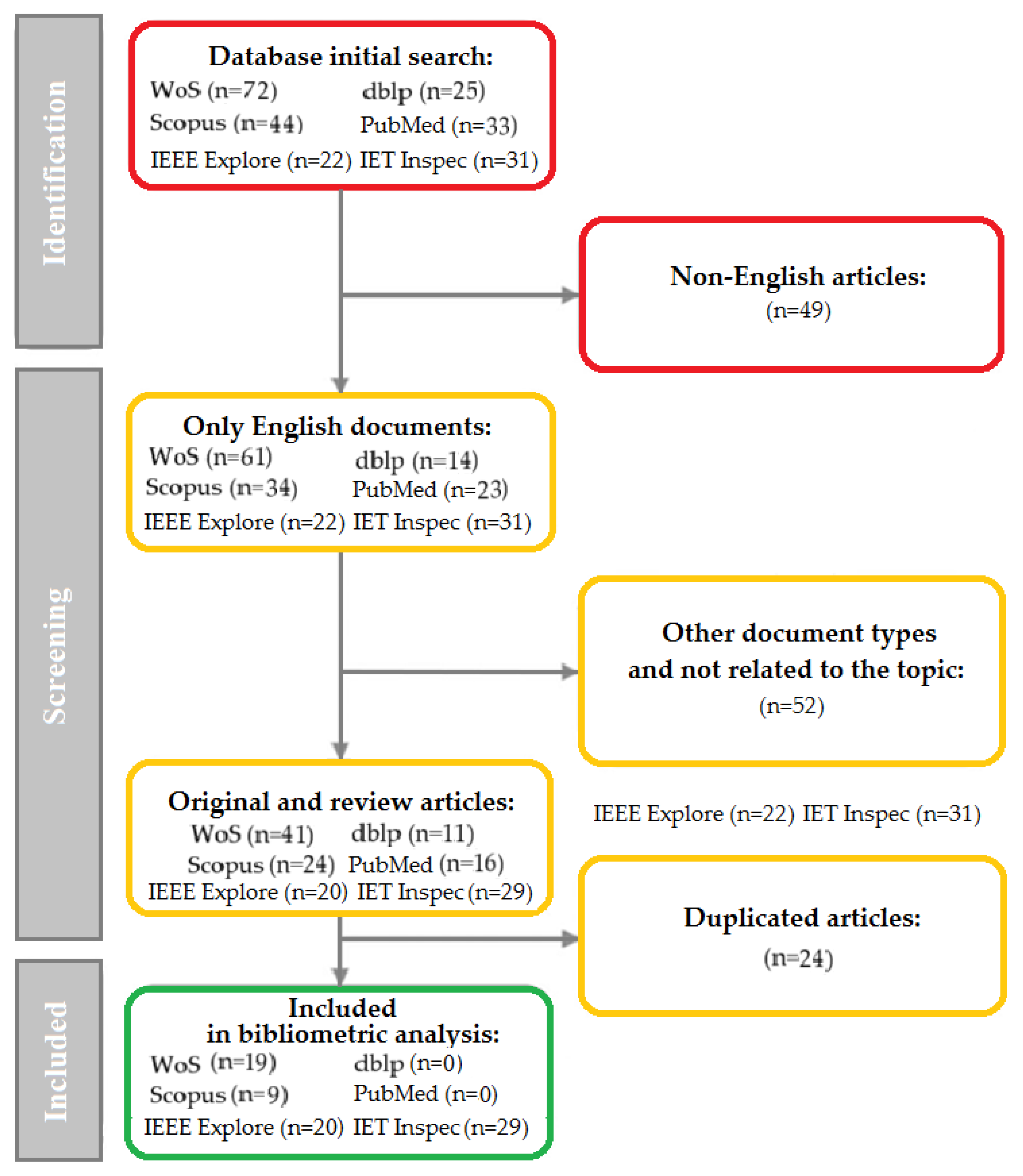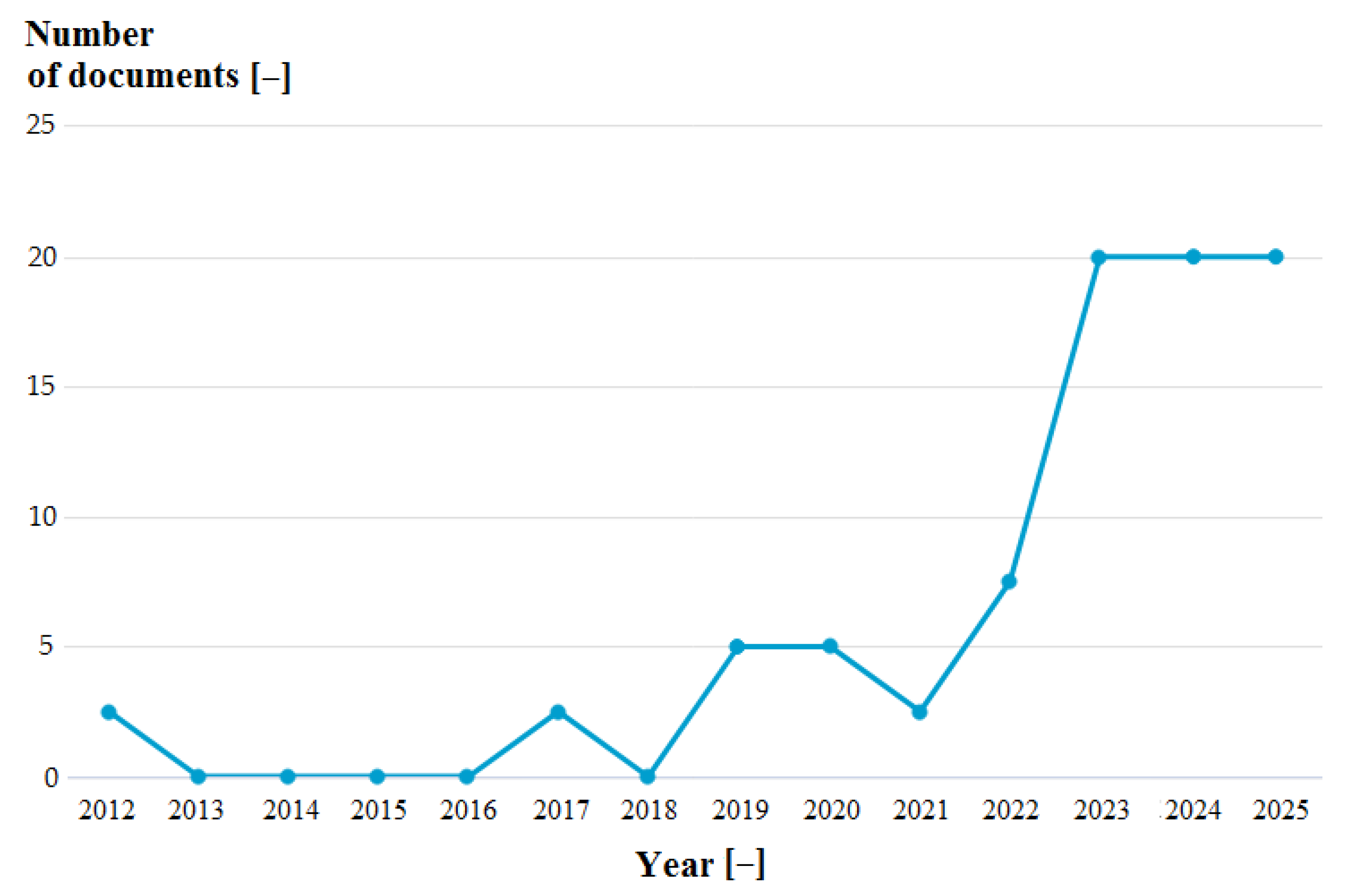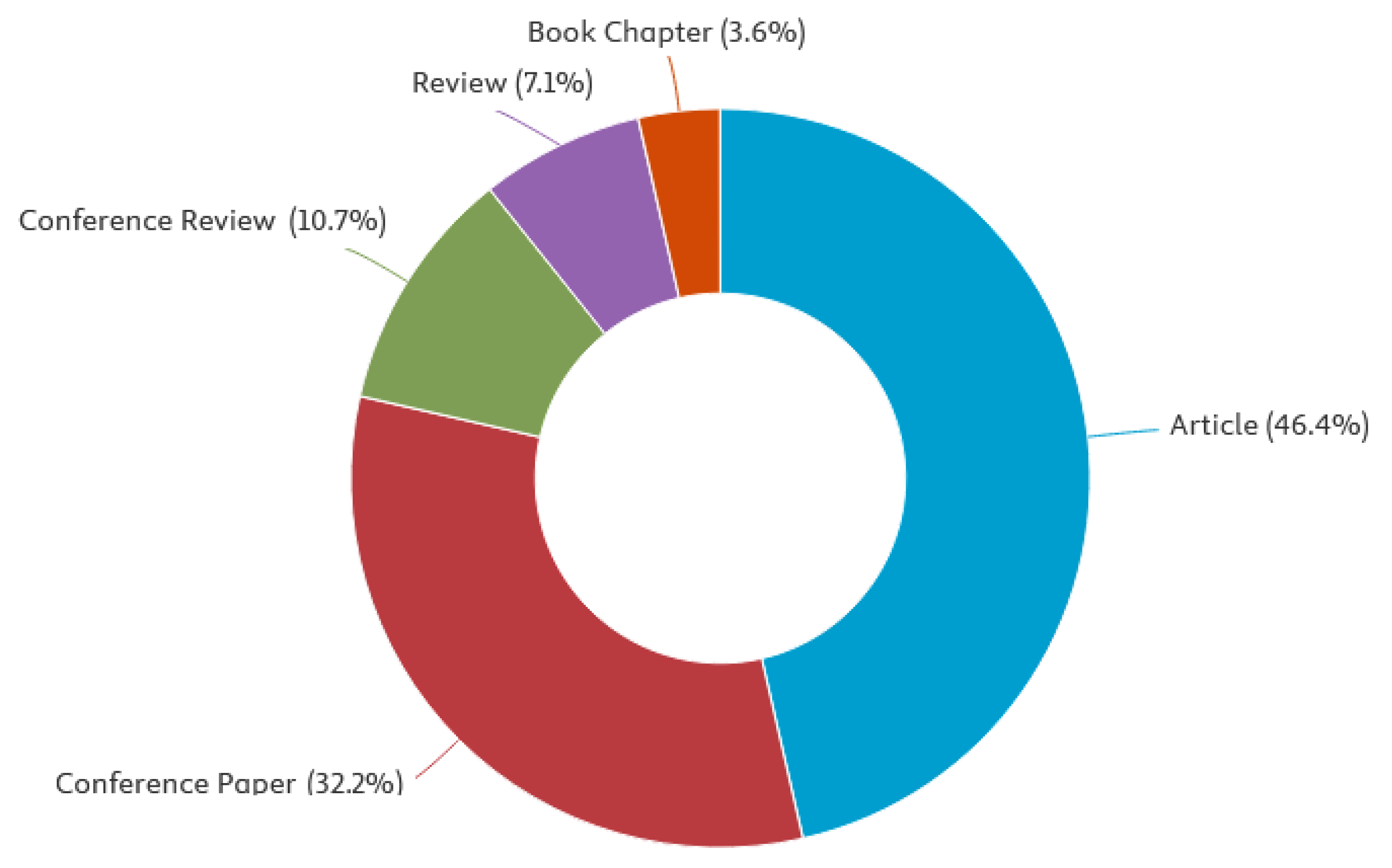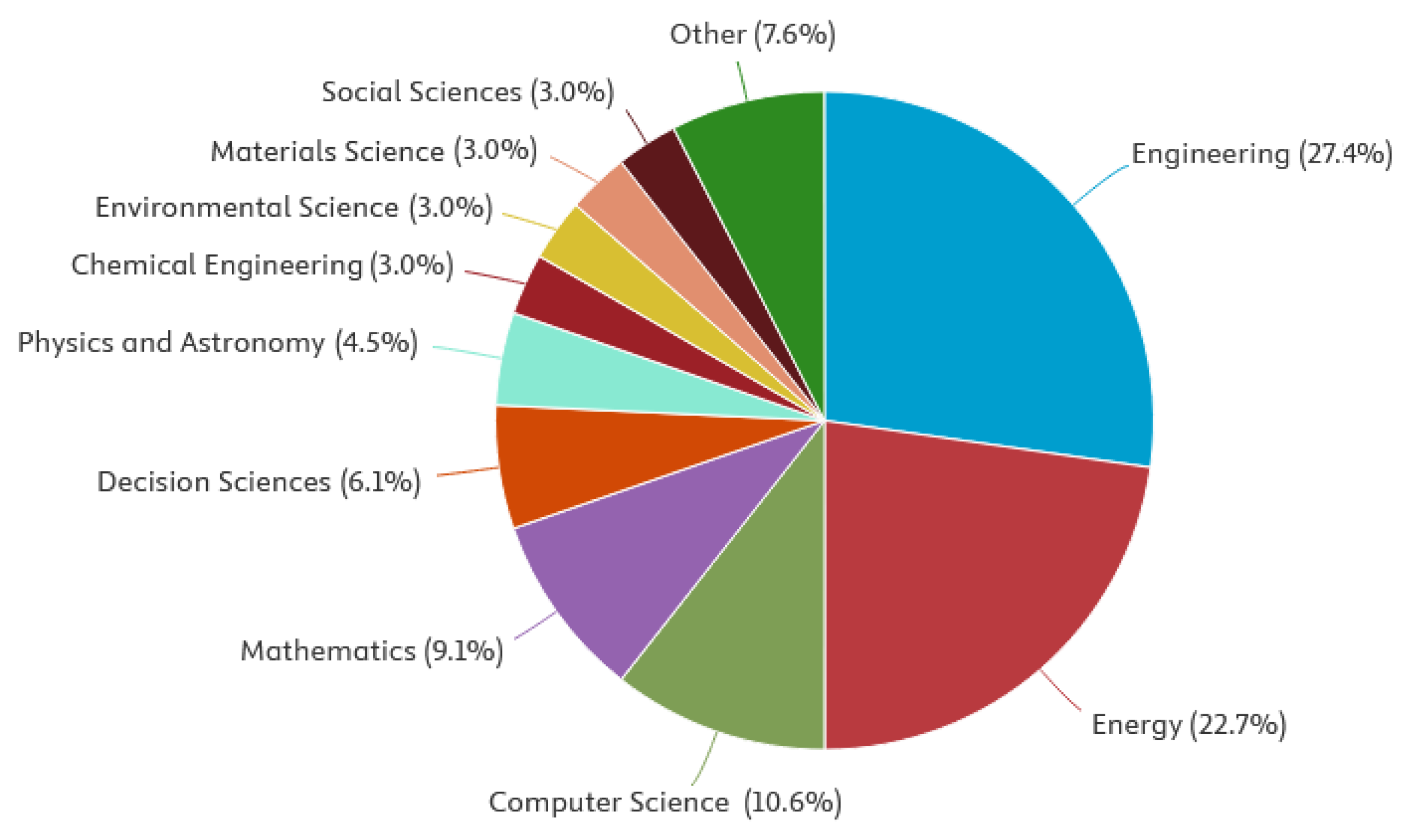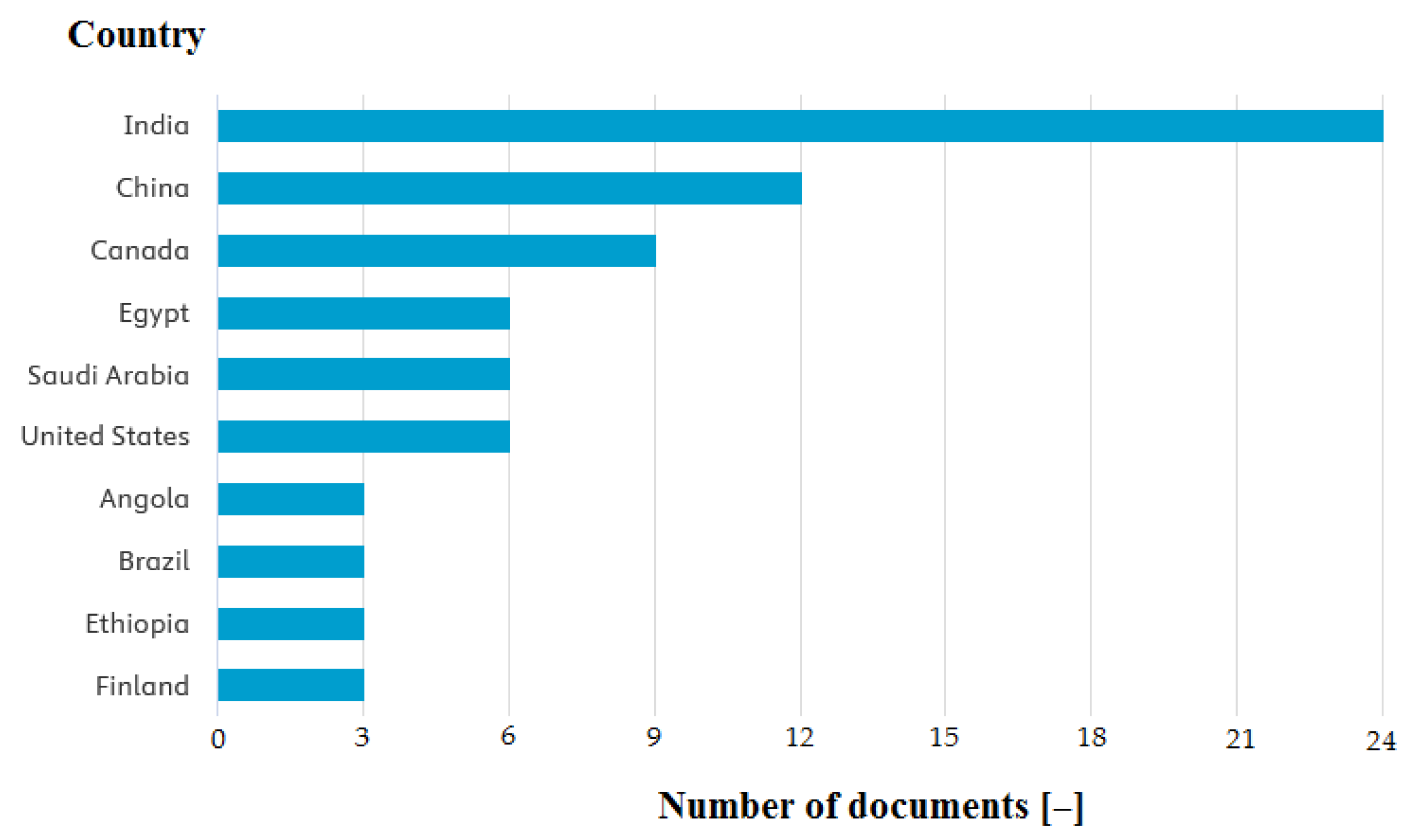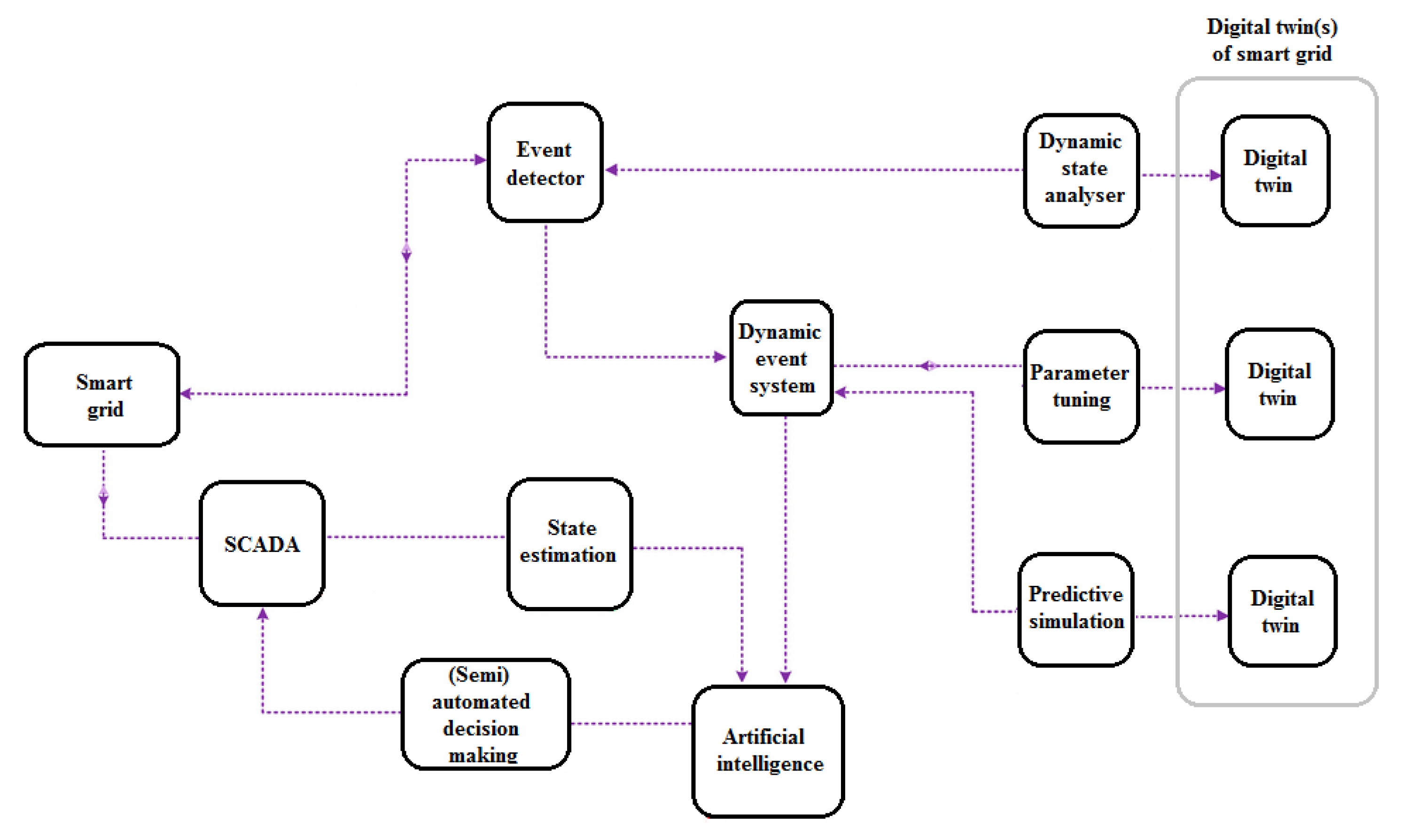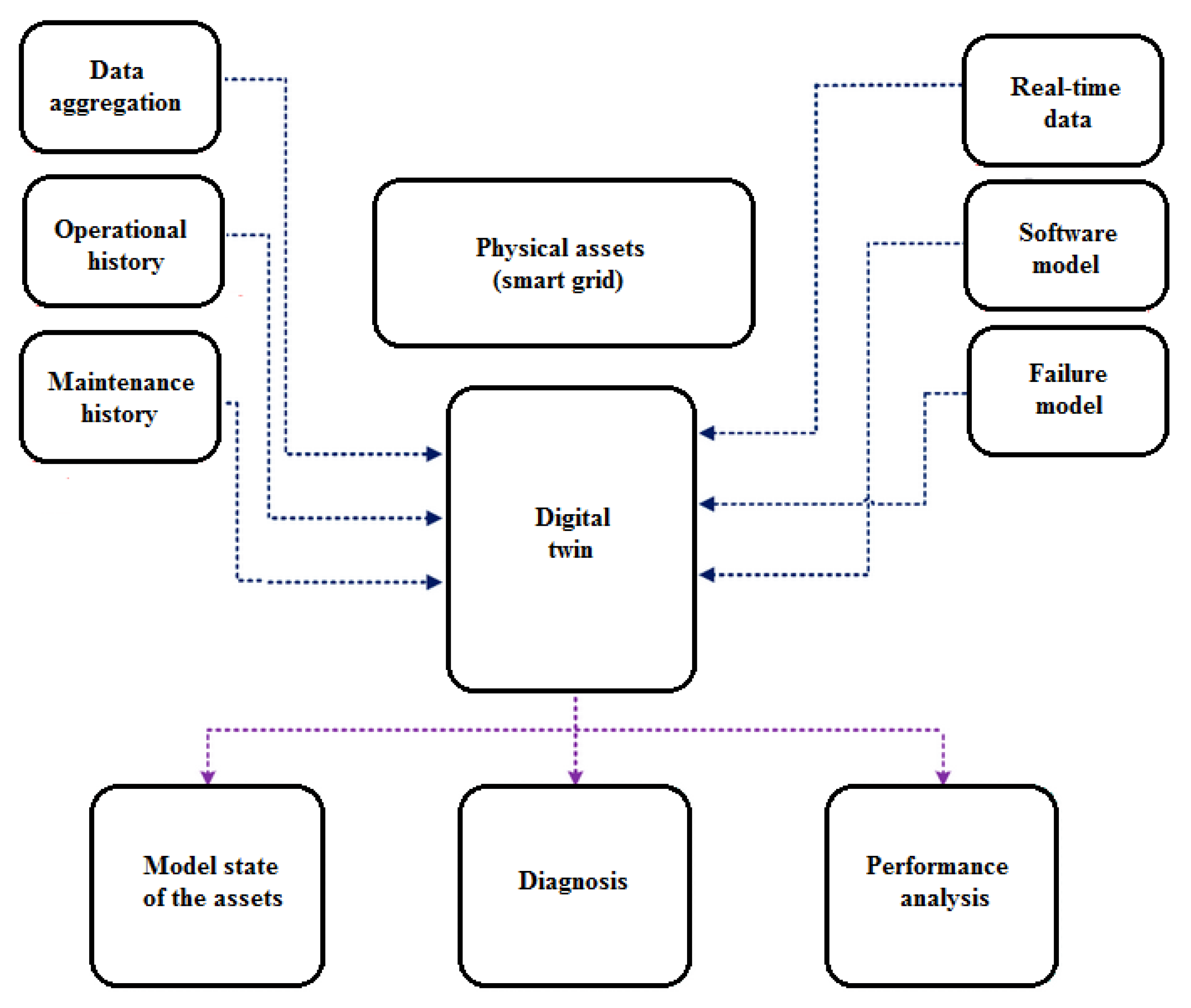Abstract
This review examined the latest advances in the modeling, analysis, and control of AC/DC power systems based on artificial intelligence (AI) in which renewable energy sources play a significant role. Integrating variable and intermittent renewable energy sources (such as sunlight and wind power) poses a major challenge in maintaining system stability, reliability, and optimal system performance. Traditional modeling and control methods are increasingly inadequate to capture the complex, nonlinear, and dynamic behavior of modern hybrid AC/DC systems. Specialized AI techniques, such as machine learning (ML) and deep learning (DL), and hybrid models, have become important tools to meet these challenges. This article presents a comprehensive overview of AI-based methodologies for system identification, fault diagnosis, predictive control, and real-time optimization. Particular attention is paid to the role of AI in increasing grid resilience, implementing adaptive control strategies, and supporting decision-making under uncertainty. The review also highlights key breakthroughs in AI algorithms, including federated learning, and physics-based neural networks, which offer scalable and interpretable solutions. Furthermore, the article examines current limitations and open research problems related to data quality, computational requirements, and model generalizability. Case studies of smart grids and comparative scenarios demonstrate the practical effectiveness of AI-based approaches in real-world energy system applications. Finally, it proposes future directions to narrow the gap between AI research and industrial application in next-generation smart grids.
1. Introduction
Early research on AC/DC power systems in the 1960s and 1970s relied primarily on mathematical optimization and numerical methods for load flow and classical linear programming for dispatching problems. With the development of expert systems in the 1980s, artificial intelligence (AI) began to influence power system applications, enabling rule-based decision support for fault diagnosis and system recovery [1]. In the 1990s, the popularization of artificial neural networks (ANNs) provided new opportunities for nonlinear modeling of AC/DC system dynamics, particularly in load forecasting and stability assessment [2]. Genetic algorithms and evolutionary computation also gained popularity during this period, offering robust optimization tools for transmission grid expansion, reactive power control, and DC converter operation [3]. In the 2000s neurofuzzy systems (integration of fuzzy logic rules with ANN operation) improved decision-making under uncertainty in hybrid AC/DC grids [4]. The parallel development of high-voltage direct current (HVDC) systems and flexible alternating current transmission systems (FACTS) created a need for more advanced AI-based optimization to handle complex interactions [5]. The introduction of support vector machines (SVMs) and data-driven learning in the late 2000s improved fault classification, transient stability prediction, and system safety assessment [6]. With the growth of renewable energy integration in the 2010s, AI became crucial in handling the variability of wind and solar power in hybrid AC/DC grids [7]. As renewable energy sources (particularly wind- and sunlight-based) proliferated in the 2010s, their intermittent and unpredictable nature posed challenges for maintaining performance (including efficiency, stability, etc.) of hybrid AC/DC power systems. AI became essential for forecasting, control, and optimization to manage these fluctuations in generation and demand. Machine learning algorithms such as support vector machines (SVMs) and ANNs were used for short-term forecasting of energy parameters (such as sunshine or wind speed), and power output. DL models, including long short-term memory (LSTM) and recurrent neural networks (RNNs), further improved accuracy by capturing temporal dependencies in renewable energy data. Evolutionary algorithms such as genetic algorithms (GAs) and swarm intelligence were used in optimization tasks to coordinate grid stability and further distribution of energy between AC and DC subsystems. At this stage of development, AI has enabled hybrid grids to operate more reliably and efficiently despite the high variability introduced by the integration of renewable energy. Recent advances in deep learning, reinforcement learning, and edge computing have enabled real-time optimization of converter control, distributed energy management, and adaptive protection systems [8]. Currently, AI-based modeling and optimization in AC/DC systems is evolving towards explainable AI, physics-based learning, and digital twin frameworks, which marks a shift from purely data-driven approaches to hybrid intelligence [9].
The first stage (1960s and 1970s) was based on classical mathematical optimization and numerical methods, with AI playing no role, but rather laid the foundation for future intelligent modeling [10]. The second stage (1980s) introduced expert systems using rule-based reasoning to support decision-making in the operation of AC/DC power systems and fault diagnosis [11]. The third stage (early 1990s) saw the application of artificial neural networks (ANNs) for nonlinear modeling in load forecasting, transient stability analysis, and DC converter efficiency analysis [12]. In parallel, in the same decade, genetic algorithms and evolutionary computation emerged, providing optimization techniques for reactive power planning, transmission grid expansion, and AC/DC power flow control [13]. The fourth stage (late 1990s–2000s) involved combining fuzzy logic with neural networks, enabling intelligent controllers to manage uncertainty in hybrid AC/DC grids [14]. The fifth stage focused on the use of SVMs and ML classifiers for pattern recognition in fault detection, stability prediction, and protection coordination [15]. The sixth stage (2010s) was driven by the quick development of sources of renewable energy, where AI-based prediction and optimization accounted for the stochastic behavior of renewable sources of energy (wind and solar power) in hybrid AC/DC grids [16]. The seventh stage involved the integration of reinforcement and deep learning, enabling adaptive control of HVDC systems [17], FACTS devices, and distributed energy resources. The eighth stage added edge computing and distributed AI, enabling near-real-time optimization and energy management in geographically distributed AC/DC systems [18]. This stage emphasizes hybrid intelligence, combining physics-based AI, digital twins, and explainable models to ensure the transparency, robustness, and efficiency of future smart AC/DC grids [19]. These stages of AI adoption in power system analysis typically follow a structured progression from concept to full integration. Data acquisition and preprocessing involve collecting large datasets from AC/DC systems and preparing them for AI analysis. Model development focuses on training ML and DL models to reflect system dynamics and predict behavior. Optimization and control utilize AI algorithms to improve system performance, reliability, and efficiency. Validation and implementation ensure the accuracy and reliability of models when applied to real-world grid operations. Adaptive learning and integration enable continuous updates through feedback loops as systems and grid conditions evolve. The impetus for identifying these stages is to provide a systematic framework for understanding how AI progresses from theory to practice in power systems, emphasizing technological maturity and practical application [20,21,22,23,24,25,26]. The stages are not an original concept, but were taken from knowledge, experience and the literature, although we proposed the description and approach to the stages as our own stage models, resulting from the existing framework of research on AI.
Observed challenges in AI-based AC/DC power system modeling and optimization include the following:
- One of the main challenges is the complex, nonlinear dynamics of hybrid AC/DC networks, which makes it difficult for AI models to accurately represent system behavior under diverse operating conditions [27];
- Integrating renewable energy sources introduces significant variability and uncertainty, complicating the training and implementation of reliable AI forecasting and optimization tools [28];
- AI models often face real-time constraints, as computational delays may threatenstability and security of AC/DC power systems [29];
- The heterogeneity of data sources across devices, converters, and control layers complicates the standardization of AI-based solutions;
- Data scarcity and poor quality remain a persistent challenge, as fault and emergency events in AC/DC networks are rare and often underrepresented in datasets [30];
- Cybersecurity vulnerabilities threaten AI-based optimization because malicious attacks can manipulate data or disrupt control operations in AC/DC systems;
- The lack of interpretability and explainability of deep learning models reduces the trust of system operators and regulators;
- Scaling AI methods to large, interconnected hybrid AC/DC networks remains challenging due to the increased computational complexity and limited scalability of existing algorithms [31];
- Unstable reinforcement learning strategies under rapidly changing network conditions pose risks to real-time control of converters and energy management systems;
- Insufficient integration of AI with digital twin platforms limits the ability to safely test, validate, and analyze scenarios before deployment in live power systems [32] (Table 1).
 Table 1. Challenges of AI-based modeling and optimization of AC/DC power systems (own elaboration).
Table 1. Challenges of AI-based modeling and optimization of AC/DC power systems (own elaboration).
Aim of this review is to examine recent advances in the analysis, modeling, prediction, and control of AC/DC power systems with a high share of various renewable energy sources based on AI.
2. Materials and Methods
2.1. Dataset
In order to examine the current state of research, knowledge and practice in the field of the impact of new artificial intelligence methods on energy optimization in AC/DC systems, a bibliometric analysis of scientific publications was carried. In order to better identify and analyze recent (i.e., up to 15 years ago, between 2011 and 2025) global scientific publications, popular and commonly used bibliometric methods were selected. The criteria for including articles in the review were as follows: original articles in English and review articles, as well as full texts of conference papers and book chapters, indexed in six major bibliometric databases: WOS, Scopus, PubMed, dblp, IEEE Explore and IET Inspec. The exclusion criteria for the review included languages other than English, other forms of publication (reports, abstracts, etc.) and lack of access to the full text. To help identify the most important areas, including the current state of research (areas, topics), publication origin (institutions, countries) and the most common forms of collaboration (including research funding sources, where available), leading authors (publication leaders, research team leaders) and, where possible, the evolution of the most frequently addressed research topics over the years, the following research questions were formulated:
- RQ1: evolution of research areas over time;
- RQ2: geographical distribution of research (countries, territories), authors (research teams and their leaders), scientific institutions (affiliations of researchers) and key publications with the highest impact;
- RQ3: key topics influencing directions of future research.
This approach is particularly relevant to the results of this review due to the dynamic changes in AI research, which are crucial for the energy efficiency of AC/DC systems in increasingly new smart environments (smart cities, smart territories). Furthermore, where possible, we have sought to identify the Sustainable Development Goals (SDGs) that describe the publications included in the review as part of the global green transition towards sustainable development, which is preparing us for a more sustainable world after 2030, one that is more respectful of the environment and creates better living conditions for future generations. This method of analysis allows for a more comprehensive understanding of the areas and pace of development of past and current research, as well as the related economic, social, legal and ethical trends. Public support influences the development and implementation of government policies, business strategies and AI-based practices in the development of AI/ML-based data analysis technologies to ensure energy efficiency. This enables a better understanding and planning of further development activities in this field and allows for better adaptation of the potential of future research and practices in technological and regulatory areas, taking into account the social context of the proposed changes (the need for social acceptance to slow down megatrends). The above-mentioned current and relevant bibliometric analyses may influence discussions and provide a basis for future analyses.
2.2. Methods
As part of this study, a targeted and planned search of six bibliographic databases was conducted: Web of Science (WoS), Scopus, PubMed, dblp, IEEE Explore, and IET Inspec. Combining these databases allowed us to obtain the widest possible range of publications, providing rich data of global significance for the development of knowledge and its applications (Figure 1, Table 2). The filters built into the above-mentioned databases were used to quickly extract the most important results, which allowed for further analysis of selected publications and narrowing down the search scope. Each article was manually re-checked by three independent reviewers to ensure that it met the inclusion criteria, which allowed the final sample size (number of publications) to be determined. The key characteristics of the dataset were then analyzed, including the most frequent authors/research groups, their affiliations (academic institutions, countries), sources of funding (e.g., grants, funding institutions if specified in the publications), scientific fields and thematic clusters. This allowed for preliminary mapping of the main research achievements in the analyzed area and identification of emerging trends. Where possible, temporal trends were tracked, which allowed for monitoring changes in the research area over time. The publications were also grouped into thematic clusters, which also revealed links between different research areas. This process allowed for the identification of important topics and sub-areas within the research area, including those that are still developing but are already present in scientific discourse.
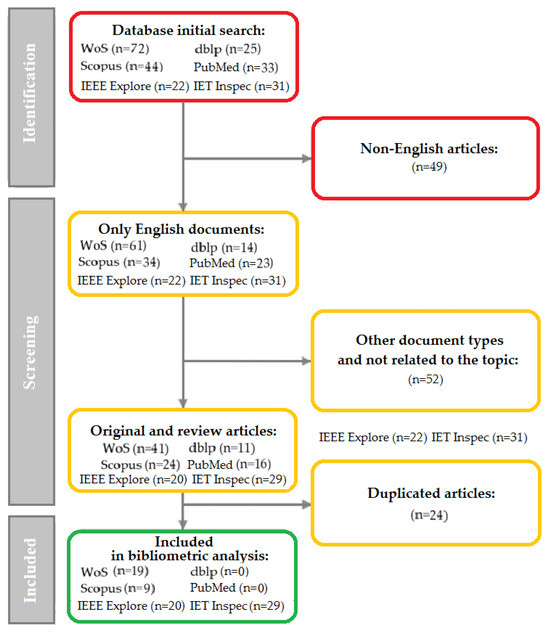
Figure 1.
PRISMA 2020 flow diagram.

Table 2.
Bibliometric analysis procedures (own approach).
To facilitate replication and improve the comparability of this review, we applied selected elements of the PRISMA 2020 guidelines for systematic reviews (Figure 1, Supplementary Materials: partial PRISMA 2020 checklist (ten items only)). This allowed for a clearer organization of the research process and its transparency. The focus was on ten following PRISMA 2020 items described in the Supplementary Materials:
- Item 3: justification;
- Item 4: objective(s);
- Item 5: criteria of eligibility;
- Item 6: sources of information;
- Item 7: strategy of research;
- Item 8: selection process;
- Item 9: data collection process;
- Item 13a: methods of synthesis;
- Item 20b: results of synthesis;
- Item 23a: discussion.
This review utilizes tools built into the WoS, Scopus, PubMed, dblp, IEEE Explore, and IET Inspec databases for bibliometric analysis, which will facilitate replication and supplementation of the study in the future. The proposed review methodology allows for precise categorization of results by keywords, authors, affiliations, research areas, documents, and sources. The results of the analysis are presented in both text and visual form to ensure that the review is adapted to the complexity of the topic (Table 3, Figure 2, Figure 3, Figure 4, Figure 5 and Figure 6).

Table 3.
Databases search query (own version).
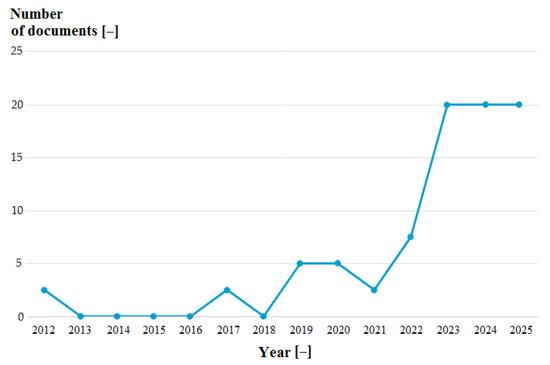
Figure 2.
Documents by year.
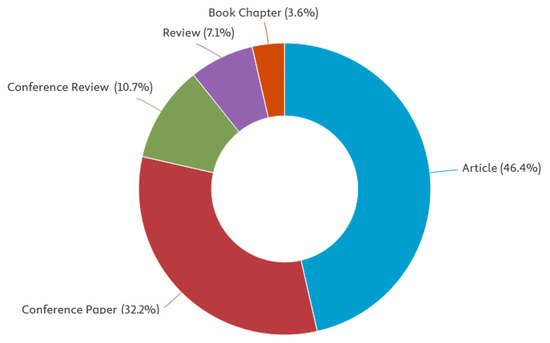
Figure 3.
Documents by type.
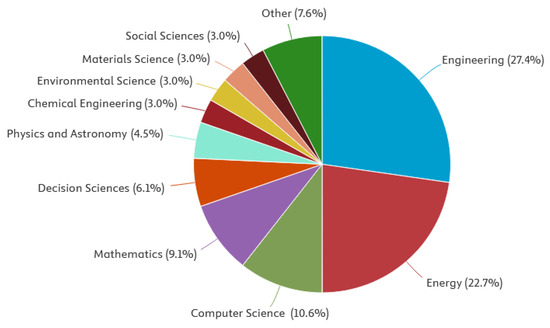
Figure 4.
Documents by area.
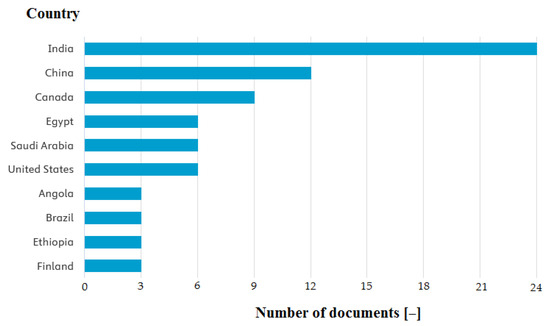
Figure 5.
Documents by country.

Figure 6.
Results by SDGs.
3. Results
3.1. Data Sources
To narrow down the search results in the selected databases, filtered queries were used, limiting the results to articles in English published between 2010 and 2025. The search was conducted as follows:
- In the WoS database: the “Subject” field (i.e., title, abstract, keywords, and other keywords) was used;
- In Scopus: article title, abstract, and keywords were used;
- In PubMed, dblp, IEEE Explore, and IET Inspec: manual keyword sets were used.
The above-mentioned databases were searched using keywords such as: “artificial intelligence” OR “AI”,“machine learning” OR “ML”, “deep learning” OR “DL” AND “optimisation” OR “optimization” AND “AC/DC” AND “power system” OR “energy” (Table 3).
In the next step, the selected publications were further screened by manually reviewing and removing irrelevant publications and duplicates in order to determine the final sample size. A summary of the results of the bibliographic analysis is presented in Table 4 and Figure 3, Figure 4, Figure 5 and Figure 6. A total of 77 articles (published between 2012 and 2025) were included in the review.

Table 4.
Summary of bibliographic analysis results (for all six databases).
3.2. Current Concepts
From the point of view of the complexity and scope of AI-based control, we can distinguish between local and global optimization. Local optimization usually tries to find the best local solution, i.e., within a limited search space. It ensures that minor changes in the solution space will not yield better results, and that solutions are simpler and faster. Global optimization tries to find the best possible solution within the entire search space. Strategies and algorithms here are much more complex and the requirements are higher. This division results from the structures and properties of the network (Table 5).

Table 5.
Traditional grid vs. smart grid.
One current approach to AI-based AC/DC power system modeling and optimization is AI-based load forecasting, where ML models predict electricity demand with high temporal and spatial resolution, supporting better balancing between AC and DC subsystems [33,34]. The second approach is ML for power flow optimization, enabling real-time decision-making in generation distribution, converter control, and storage management to maintain efficiency under uncertainty [35,36]. The third approach is the use of AI-powered digital twins that simulate AC/DC networks in real time, allowing operators to test scenarios, predict failures, and dynamically optimize system performance [37,38]. The fourth approach involves AI-powered predictive maintenance, which leverages sensor data and deep learning to detect early signs of equipment degradation in transformers, converters, and lines, reducing downtime and extending asset life [39,40]. The fifth concept is AI-based renewable energy integration optimization, which manages stochastic solar and wind generation by forecasting production and smoothing variability through intelligent storage and demand-side control [41,42]. Together, these concepts enhance grid reliability, stability, and sustainability, solving challenges that traditional optimization methods cannot address. Importantly, they also provide greater flexibility in hybrid AC/DC microgrids, which are crucial for integrating distributed energy resources [43]. However, each concept must consider threats related to cybersecurity, interpretability, and data dependency to ensure safe implementation [44,45]. The growing adoption of these methods indicates a clear trend toward self-adaptive, data-driven grids that can learn and evolve with changing conditions [46,47]. These current AI-based modeling and optimization concepts are redefining AC/DC power systems as smart, resilient infrastructures that form the foundation of future energy transformations [48,49] (Figure 7).
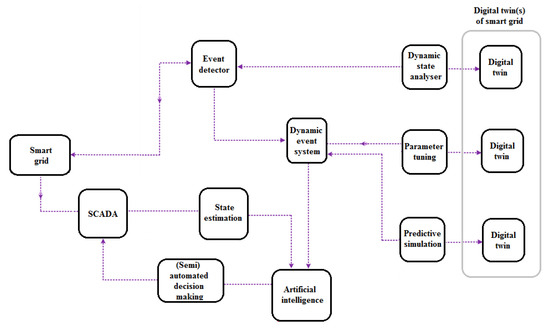
Figure 7.
Sample architecture of AI-optimized smart grid (our own approach, based in part on [50]).
The field of AI-based AC/DC power system modeling and optimization encompasses a wide range of interconnected research areas that are collectively shaping the future of intelligent energy management. In modern power systems, AC and DC networks coexist in hybrid architectures, requiring advanced control and coordination strategies to ensure stability, reliability, and efficiency. AI—through methods such as ML, DL, and reinforcement learning (RL)—has become a key tool for managing the increasing complexity and dynamics of these systems. ML techniques are used for pattern recognition, fault detection, and short-term forecasting of load and renewable generation. DL extends these capabilities by capturing nonlinear relationships and temporal dependencies in large-scale energy data. RL, in particular, is increasingly being used for real-time decision-making and adaptive control of converters, grid components, and microgrids. In microgrids, AI enables optimal energy management, balancing distributed renewables, energy storage systems, and demand response. In HVDC systems, AI supports converter control, fault diagnosis, and improved system reliability. Similarly, in FACTS, AI optimizes power flow, voltage stability, and reactive power compensation. Integrating these technologies within an AI-based framework enables coordinated AC/DC grid operation at the transmission and distribution levels. However, with increasing digitalization and system interconnection, cybersecurity is becoming a critical issue, as AI-controlled networks are susceptible to data manipulation and cyberattacks. AI itself can also contribute to cyberdefense by anomaly detection and preventing malicious intrusions in real time. Despite these advances, challenges remain in ensuring model interpretability, generalizability, and energy efficiency of AI algorithms in large-scale systems. The computational intensity of deep models and their reliance on high-quality data often limits their implementation in real-time control applications. Furthermore, the interoperability of AI methods with traditional grid control mechanisms requires further research. Broadly speaking, this interdisciplinary field combines power electronics, control theory, data science, and cybersecurity. Its goal is to create autonomous, resilient, and sustainable AC/DC power systems.
A comprehensive review on AI-based modeling and optimization of AC/DC power systems must begin with a concise summary of the governing equations that describe the physical and dynamic behavior of these systems. For AC networks, the foundational model is the power flow equation, expressed as
and
where Gij and Bij are network admittance parameters. In DC microgrids, voltage regulation is often governed by droop control, where
linking voltage deviation to current sharing between converters. The converter average models capture dynamic relations between AC and DC sides, typically formulated as
and
representing current control in the dq-frame. Furthermore, synchronization dynamics are modeled through Phase-Locked Loop (PLL) or Grid-Forming (GFM) inverter equations, where PLLs aim to track grid frequency, while GFMs emulate virtual synchronous machine behavior for stable operation.
Pi = ∑j = 1NViVj(Gijcosθij + Bijsinθij)
Qi = ∑j = 1NViVj(Gijsinθij − Bijcosθij)
V = Vref − RdI
id = (vd − Vdc)/L
iq = (vq − Vref)/L
AI enhances these models by learning system nonlinearities, parameter uncertainties, and unmodeled dynamics, which are often difficult to represent analytically. For instance, ML algorithms like support vector regression (SVR) and random forests are used for power flow approximation and fault prediction. DL methods such as convolutional neural networks (CNNs) and recurrent neural networks (RNNs) provide data-driven state estimation and dynamic modeling of converter and inverter behaviors. RL is widely applied for real-time control, energy management, and adaptive optimization in both AC and DC subsystems. The taxonomy of AI applications can be mapped as follows:
- ML: power flow estimation and fault detection;
- DL: dynamic modeling and forecasting;
- RL: control and coordination of converters and grids.
- Hybrid methods combining physics-based equations with AI (so-called physics-informed learning) improve interpretability and ensure model consistency with power system laws.
This mapping demonstrates that AI does not entirely replace analytical models but rather augments them by handling uncertainties, nonlinearities, and data-driven optimization tasks. In doing so, AI bridges the gap between traditional system equations and real-time adaptive decision-making. A well-structured review should therefore integrate these equations, illustrate how AI modifies or supplements them, and provide a taxonomy linking each AI technique to its specific modeling or optimization role. Such an approach ensures both technical rigor and clarity in showing how AI transforms AC/DC system analysis from static modeling to intelligent, data-driven optimization.
3.3. Physics-Informed AC/DC Modeling
This subsection bridge traditional power system equations with emerging AI techniques that embed physical knowledge into data-driven models. In AC power systems, the steady-state behavior is described by the power flow Equations (1) and (2) representing active and reactive power exchanges. For DC systems and microgrids, droop control defines voltage–current relationships as Equation (3) balancing load sharing among distributed generators. The converter dynamics connecting AC and DC subsystems are modeled by average equations such as
and
which capture current control in dq-coordinates. Meanwhile, PLL and GFM control laws describe synchronization mechanisms, with GFMs introducing virtual inertia terms that stabilize frequency and voltage during disturbances.
Ldtdid = vd − Vdc
Ldtdiq = vq − Vref
AI integrates with these physical formulations using physics-based neural networks (PI-NNs), which incorporate system equations directly into the neural network’s loss function. This ensures that trained models respect Kirchhoff’s laws, energy balance, and converter dynamics, even when trained on limited or noisy data. Graph neural networks (GNNs) extend this idea by representing power networks as graphs in which nodes (buses) and edges (lines) follow physical constraints, enabling scalable learning in complex AC/DC topologies. These GNN-based models are particularly useful for estimating power flow and locating faults in hybrid systems. Safe reinforcement learning (Safe RL) methods further integrate physical constraints into the learning process to prevent unsafe control actions in converters or network components. By incorporating safety margins and dynamic limits derived from the converter and droop equations, Safe RL enables real-time optimization while maintaining operational safety. Combined, these physics-based AI methods create a hybrid modeling framework that combines interpretability, accuracy, and data efficiency. Unlike purely data-driven models, they leverage domain knowledge to ensure stability, feasibility, and compliance with established power equations. This approach not only increases model reliability but also facilitates knowledge transfer across different network configurations and operating conditions. This demonstrates how PI-NN, GNN, and Safe RL networks embed physical laws into AI models, achieving a balance between data-driven intelligence and theoretical correctness for AC/DC power system optimization.
3.4. Risk Analysis
AI-based AC/DC power system modeling and optimization offer clear benefits, such as improved forecasting, real-time control, and seamless integration of renewable sources of energy [51]. However, these benefits must be weighed against potential risks.AI benefits include increased energy efficiency, reduced transmission losses, and optimized converter operation [52]. It also enables predictive maintenance, reducing costs and extending the life of critical equipment such as transformers and converters [53]. Another advantage is resilience, as AI can quickly detect faults and reconfigure networks to avoid cascading failures [54]. On the other hand, AI creates cybersecurity vulnerabilities, as intelligent systems connected to the grid create attractive attack surfaces for hackers. There is also the risk of overreliance on “black-box” models, which can hinder decision-making and reduce operator confidence in safety-critical environments [55]. High implementation costs and unequal access can prevent smaller utilities from reaping the benefits, creating technological divides [56,57]. Furthermore, data quality issues and algorithmic biases can lead to suboptimal or unfair decisions, undermining efficiency gains [58]. However, when risks are mitigated through explainable AI, robust cybersecurity, and hybrid physics-AI models, the advantages clearly outweigh the disadvantages [59]. This risk analysis demonstrates that while AI implementation must be cautious and regulated, it has the transformative potential to make AC/DC power systems intelligent, adaptive, and sustainable [60].
3.5. Future Concepts
The first future-oriented concept for modeling and optimizing AC/DC power systems based on AI is fully autonomous grid operation, where self-learning agents manage energy flows, fault recovery, and reconfiguration without human intervention, increasing the resilience of highly complex hybrid networks [61]. The second concept is quantum-assisted AI optimization, which combines quantum computing with AI algorithms to solve optimal energy flow problems in very large-scale AC/DC systems significantly faster than classical methods [62]. The third concept is federated learning for power system intelligence, where distributed AI models learn from local network data without centralizing sensitive information, improving privacy, cybersecurity, and adaptability across regions [63]. The fourth concept is AI-based cross-sector coupling optimization, integrating power systems with cooling, heating, transportation, and hydrogen systems to achieve holistic energy efficiency and carbon neutrality [64]. These future developments are expected that they will to lead to self-healing power systems predicting, preventing, and mitigating outages with minimal service disruption [65]. They also point to decentralized energy management, where prosumers, microgrids, and utilities are coordinated through intelligent multi-agent platforms [50,66]. Advanced AI concepts will enable real-time dynamic pricing and market design, adapting consumer behavior to the renewable energy sources in both AC and DC subsystems. Integration with next-generation sensors and the Internet of Things (IoT) will create ultra-high-resolution digital twins (DTs), providing unprecedented insight into system dynamics [50,67,68,69]. However, future concepts will require addressing challenges such as ethical AI governance, explainability, and interoperability within global infrastructures. innovations will redefine AC/DC power systems as autonomous, sustainable and human-centric energy ecosystems, supporting the goals of Industry 6.0 and climate neutrality (Figure 8) [70].
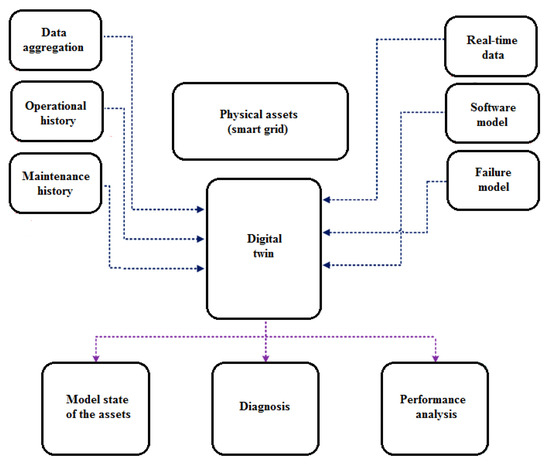
Figure 8.
Smart grid as cyber-physical system (our own approach, based in part on [50]).
3.6. Green AI vs. Red AI
In AI-based AC/DC power system modeling and optimization, the distinction between Green AI and Red AI is becoming increasingly important [71,72]. Green AI emphasizes energy-efficient algorithms, minimizing computational costs and carbon footprint while achieving high optimization results [73]. In this approach, models are designed to reduce training time, efficiently utilize smaller datasets, and directly align with sustainability goals in the energy sector. Red AI, on the other hand, focuses on maximum efficiency and accuracy, often relying on very large models and extensive computational resources, which can increase energy consumption. In the context of AC/DC power systems, Green AI supports sustainable digitalization by ensuring that the optimization of renewable energy sources, storage, and load balancing does not paradoxically generate higher emissions resulting from excessive AI computation [74]. Red AI can provide faster or more accurate load and fault predictions, but this risks reducing long-term efficiency if its training and implementation require more energy than the system’s savings. Green AI is particularly well-suited to real-time applications in microgrids, where lightweight, efficient models are crucial [75]. Red AI can find its place in large-scale, offline system planning, where computational intensity is less of a concern compared to the value of highly accurate analyses [76]. The challenge is to balance these paradigms, integrating Green AI principles with high-performance Red AI systems to maximize accuracy while controlling resource consumption [77]. The future of AC/DC power system optimization depends on adopting Green AI as the default, ethical, and sustainable path, ensuring that AI itself does not become a burden on the energy systems it is intended to improve [78].
4. Discussion
Prosumers’ current preferences for AI-based AC/DC power system modeling and optimization are driven by their desire for lower energy costs through intelligent demand management and real-time optimization [79,80]. They increasingly value reliability and stability, expecting AI to predict and mitigate fluctuations in sources of renewable energy such as rooftop photovoltaic systems or small wind turbines [81]. User-friendly interfaces are currently a priority, as prosumers prefer transparent and accessible platforms that allow them to monitor and control energy flows. Many prosumers also emphasize data privacy and security, expressing caution toward AI systems that require extensive data on personal energy consumption [82]. Sustainability remains a strong motivation, and prosumers favor AI methods that help maximize their own green energy consumption while reducing their carbon footprint [83,84]. Looking ahead, prosumers are expected to favor personalized optimization, where AI adapts energy management strategies to their lifestyle, device usage, and mobility needs (e.g., electric vehicle charging) [85]. They will increasingly seek to participate in energy markets using AI tools that enable peer-to-peer trading and dynamic pricing. Future preferences also point to interoperability, where AI systems seamlessly integrate with smart homes, IoT devices, and social microgrids [86]. As digitalization advances, prosumers will likely favor understandable AI solutions, ensuring they can trust and verify the optimization decisions made on their behalf [87]. Ultimately, future prosumer expectations will balance economic efficiency, environmental sustainability, and trust in digital solutions, positioning AI as a tool for both cost savings and expanding the potential for optimizing AC/DC power systems [88].
Summary of observed research gaps in AI-based AC/DC power system modeling and optimization:
- A key gap is the lack of a unified framework integrating AI models with the physical equations of AC/DC systems, leading to “black-box” predictions with limited interpretability [20].
- Many studies emphasize accuracy but neglect the energy efficiency of the AI algorithms themselves, which is becoming crucial for real-time applications. In this context, “energy efficiency” refers to the amount of computational energy consumed by AI algorithms when processing data, training models, or making real-time decisions in power systems. As AI models become more complex—especially DL models—they can require more and more computing power and electricity, which can offset the benefits of optimizing grid energy consumption. Hence, the distinction between Green AI and Red AI. In the context of real-time applications in AC/DC power systems, high energy consumption by AI can limit responsiveness, increase operating costs, and burden the embedded control hardware. Therefore, energy-efficient AI (Green AI) emphasizes lightweight models, faster convergence, and reduced computational load without sacrificing prediction accuracy. Techniques such as model compression, pruning, and edge computing are increasingly being explored to balance performance and energy consumption. This issue highlights the growing research focus on developing sustainable AI methods that optimize both the energy system and the AI’s energy consumption [21].
- There is lack of sufficient, replicable research on scalable AI models that can handle the increasing complexity of big hybrid AC/DC networks with high renewable energy penetration [22].
- Current fault detection and protection systems are often not resilient to adversarial interference and cyberattacks, limiting their reliability in critical infrastructures [23].
- The availability of high-quality, labeled datasets for AC/DC optimization remains limited, limiting the generalizability of AI models across diverse network conditions [24].
- AI-based optimization methods often ignore multi-objective trade-offs, such as simultaneously balancing cost, stability, emissions, and reliability.
- Few studies explore real-time AI implementations at the grid edge, and most of them rely on cloud computing, which introduces latency and communication overhead [25].
- Current reinforcement learning (RLE) methods for controlling converters and grids often suffer from slow convergence and unstable rules when dynamic system changes occur.
- Progress in developing explainable AI methods that allow operators to trust and verify optimization decisions in AC/DC networks is limited [26].
- Integration with digital twin technology is still in its infancy, and a proven framework for testing AI algorithms on virtual replicas of real AC/DC power systems is lacking (Table 6).
 Table 6. Observed research gaps (own elaboration).
Table 6. Observed research gaps (own elaboration).
4.1. Limitations
The limitations of AI-based AC/DC power system modeling and optimization in this study stem primarily from data availability and quality, as power system datasets are often incomplete, noisy, or proprietary [89]. Subsequent limitation is the generalizability of AI models, as algorithms trained in one grid configuration or region may not perform reliably in other systems with different load patterns or infrastructure, especially in energy cooperatives with many different energy sources and consumers [90]. The computational cost of training advanced AI models, especially deep learning, can be high, limiting scalability for real-time control of large-scale hybrid AC/DC systems [91]. Model interpretability remains a challenge because many AI approaches operate as black boxes, limiting their direct acceptance by grid operators who require transparent decision-making [92]. The study is also limited by the simplification of system dynamics, where nonlinearities, transient stability issues, and extreme fault conditions may not be fully accounted for [93]. Integration of AI with existing optimization frameworks and control algorithms is limited by legacy infrastructure and compatibility issues [94]. The results may also be influenced by assumptions about renewable energy penetration and storage availability, which can vary significantly across regions [95]. There is a limit to resilience under uncertainty, as AI models may not adapt well to sudden disruptions, cyberattacks, or unprecedented grid conditions [96]. Furthermore, regulatory and operational constraints are not fully considered, which impacts the practical implementation of AI-based solutions in real-world power grids [97]. Furthermore, the study is limited by the lack of a comprehensive sustainability impact assessment, as the energy consumption of AI models themselves has not yet been fully integrated into optimization frameworks [98].
4.2. Technological Implications
AI-based modeling and optimization have had a transformative impact on AC/DC power systems, enabling smarter, more resilient, and more efficient grid operation. Traditional analytical and heuristic methods often struggle with the nonlinear, dynamic, and multi-criteria nature of modern hybrid power grids, while AI techniques can learn complex patterns directly from operational data [99]. Machine learning algorithms improve load forecasting, fault detection, and stability assessment, improving both short-term reliability and long-term planning [100]. Deep learning models, especially those using spatiotemporal data, enable real-time voltage and frequency control at AC/DC interfaces, crucial as renewable energy sources become increasingly integrated [101]. Reinforcement learning (RL) has shown significant potential for adaptive control and optimal energy flow, dynamically balancing generation, storage, and demand under conditions of uncertainty [102]. AI-based optimization techniques also support converter control and scheduling strategies, maximizing efficiency while minimizing losses and emissions. In the context of renewable energy and its distributed generation [103], AI helps manage stochastic behavior, increasing the flexibility and sustainability of AC/DC systems. However, reliance on large datasets raises challenges related to data quality, cybersecurity, and interpretability, which must be addressed to ensure safe deployment in critical infrastructure [104]. Hybrid approaches combining AI with physics-based models are gaining popularity, providing the ability to explain solutions while leveraging data-driven accuracy [105]. AI-based modeling and optimization are transforming AC/DC systems into more intelligent, adaptive, and future-proof grids, accelerating the transformation towards low-carbon energy systems.
4.3. Economic Implications
AI-based modeling and optimization are having a significant economic impact on AC/DC power systems, reducing operating costs through more efficient energy management and load balancing. By increasing the accuracy of demand, price, and renewable energy generation forecasts, AI helps utilities minimize reserve margins and avoid costly overproduction [106]. Optimized AC/DC converter control increases transmission efficiency, reducing energy losses, which translates directly into financial savings. AI-based maintenance strategies, particularly predictive and condition-based maintenance, extend equipment life and reduce repair costs by preventing unplanned downtime. In electricity markets [107], AI enables dynamic pricing and bidding strategies, creating opportunities for cost reductions for consumers and maximizing profits for suppliers. Integrating renewable energy sources and distributed resources, supported by AI-based optimization, reduces dependence on fossil fuels, leading to long-term savings and improved economic sustainability [108]. At the same time, AI accelerates the return on investment in smart grid infrastructure by improving utilization rates of existing assets. However, the high upfront investment in AI technologies, along with the costs of data infrastructure and skilled labor, can be prohibitive for smaller utilities [109]. There are also economic risks related to market volatility and cybersecurity gaps, which can negate some of the financial benefits if not managed properly [110]. AI-based modeling and optimization promote more cost-effective, resilient, and competitive AC/DC power systems, enhancing both short-term efficiency and long-term energy economics, including within the framework of renewable energy-based sustainability.
4.4. Societal Influence
AI-based AC/DC power system modeling and optimization are having a profound impact on society by ensuring a more reliable electricity supply, which is fundamental to everyday life and economic activity. Improving grid stability and resilience reduces the frequency and duration of power outages, directly improving public safety and quality of life [111]. By optimizing the integration of the sources of renewable energy, AI contributes to cleaner energy production, which supports climate goals and improves public health by reducing air pollution [112]. Households and communities benefit from lower energy costs achieved through efficiency gains and smarter demand management. AI-based microgrids and decentralized optimization facilitate energy access in remote or underserved regions, reducing inequalities in electricity availability [113]. Improved forecasting and control enable faster responses to extreme weather events or natural disasters, strengthening society’s resilience to climate change [114]. However, reliance on AI raises concerns about job losses in traditional grid management roles, requiring retraining and new training opportunities. There are also issues of trust and transparency, as communities need to be confident that AI-driven decisions regarding critical infrastructure are safe and fair [115]. Cybersecurity vulnerabilities in AI-driven energy systems can have far-reaching societal consequences, underscoring the need for robust protection. AI-driven AC/DC system optimization supports the transformation towards a more sustainable, equitable, and resilient energy society, provided that ethical, security, and inclusive challenges are addressed [116].
4.5. Ethical and Legal Influence
AI-based modeling and optimization of AC/DC power systems introduce complex ethical and legal issues due to their role in managing critical infrastructure. Ethical concerns arise regarding algorithm transparency and accountability, as “black-box” AI models can obscure the reasoning behind operational decisions that affect millions of users. Legal frameworks must address liability in the event of power outages or outages, clarifying whether liability rests with utilities, AI developers, or regulators [117]. Implementing AI-based optimization also raises issues of fair access and energy justice, as pricing and distribution decisions must not discriminate against vulnerable groups. Privacy becomes a key ethical dimension when AI uses consumer-level energy consumption data, requiring compliance with data protection regulations [118]. From a regulatory perspective, standards are needed to ensure cybersecurity and reliability, as AI-driven power grids are an attractive target for attacks. Ethical debates also focus on operator autonomy, as overreliance on automated systems could undermine human oversight in critical situations. Integrating AI into cross-border AC/DC power systems presents legal challenges, as different jurisdictions may impose conflicting regulations on data use and operational standards [119]. There is also a broader ethical imperative to ensure that AI-based energy optimization contributes to sustainable development and climate protection goals, rather than maximizing profits at the expense of environmental responsibility. The ethical and legal implications of AI on AC/DC power systems emphasize the need for transparent governance, clear regulations, and human-centered design to balance innovation with accountability and social trust [120].
4.6. Directions of Further Studies
Directions of further studies in AI-based AC/DC power system modeling and optimization:
- Developing physics-based AI models that combine data-driven learning with the laws of physics to improve accuracy and interpretability [121];
- Scalable, distributed AI frameworks that can manage the complexity of large-scale, interconnected hybrid AC/DC networks [121];
- The development of real-time edge AI algorithms reducing latency and computational burden in time-sensitive network operations [122];
- Multi-objective optimization approaches that simultaneously balance cost, stability, emissions, and reliability [123];
- The development of attack-resistant and secure AI models is essential to protecting AC/DC power systems from cyberattacks and malicious disruptions [124];
- Improving eXplainable AI (XAI) methods tailored to the needs of power system operators will increase trust and regulatory acceptance [125,126].
Further work is needed on synthetic data generation and digital twin technologies to overcome data shortages and safely validate AI models before deployment [127]. AI forecasting and optimization that incorporates uncertainty should be prioritized to account for the stochastic nature of renewable energy in hybrid grids [128]. Secure reinforcement learning and adaptive control strategies are essential to ensure the stable, real-time operation of HVDC systems and converters. Integrating AI with smart grid interoperability standards will enable seamless deployment across devices and regions, accelerating the implementation of intelligent AC/DC optimization [129]. Proposed roadmap is shown in Table 7.

Table 7.
Roadmap for the research directions in AI-based modeling and optimization of AC/DC power systems (own elaboration).
5. Conclusions
AI-based modeling and optimization have become powerful tools for addressing the growing complexity of hybrid AC and DC power systems. Advances in ML, DL, and reinforcement learning have enabled new approaches for load forecasting, stability analysis, and converter control. Despite these achievements, significant challenges remain, including data scarcity, lack of interpretability, and the need for real-time, scalable solutions. The integration of edge computing, federated learning, and digital twins shows promise for overcoming latency, privacy, and validation limitations. Future progress depends on the development of hybrid models that combine AI with physics-based system knowledge to ensure reliability and transparency. Strengthening cybersecurity, enhancing explainable AI, and designing energy-aware algorithms will be crucial for safe and sustainable deployment. AI has the potential to transform AC/DC system optimization, but its success will rely on bridging current research gaps and aligning innovations with real-world grid requirements.
Supplementary Materials
The following supporting information can be downloaded at https://www.mdpi.com/article/10.3390/en18215660/s1. PRISMA 2020 checklist (partial only). Reference [130] is citied in the Supplementat Materials.
Author Contributions
Conceptualization, I.R. and D.M.; methodology, I.R., D.M., P.P. and M.P.; software, D.M.; validation, I.R., D.M., P.P. and M.P.; formal analysis, I.R., D.M., P.P. and M.P.; investigation, I.R., D.M., P.P. and M.P.; resources, I.R., D.M., P.P. and M.P.;data curation, I.R., D.M., P.P. and M.P.; writing—original draft preparation, I.R., D.M., P.P. and M.P.; writing—review and editing, I.R., D.M., P.P. and M.P.; visualization, D.M.; supervision, I.R.; project administration, I.R.; funding acquisition, D.M. All authors have read and agreed to the published version of the manuscript.
Funding
This research is being carried out as part of the mini-grant “Using machine learning algorithms to optimize transmission in wireless measurement networks” in the project funded by the Polish Minister of Science and Higher Education under the ‘Regional Initiative of Excellence’ program (RID/SP/0048/2024/01) for Kazimierz Wielki University. The work presented in this paper has been financed under a grant to maintain the research potential of Kazimierz Wielki University.
Data Availability Statement
No new data were created.
Conflicts of Interest
The authors declare no conflicts of interest.
Abbreviations
The following abbreviations are used in this manuscript:
| AI | Artificial intelligence |
| ANN | Artificial neural network |
| DL | Deep learning |
| FACTS | Flexible alternating current transmission system |
| GenAI | Generative AI |
| HVDC | High-voltage direct current |
| ML | Machine learning |
| SVM | Support vector machine |
References
- Abrahamsen, F.E.; Ai, Y.; Cheffena, M. Communication Technologies for Smart Grid: A Comprehensive Survey. Sensors 2021, 21, 8087. [Google Scholar] [CrossRef]
- Hollweg, G.V.; Singh Chawda, G.; Chaturvedi, S.; Bui, V.-H.; Su, W. Optimization Techniques for Low-Level Control of DC–AC Converters in Renewable-Integrated Microgrids: A Brief Review. Energies 2025, 18, 1429. [Google Scholar] [CrossRef]
- Vodapally, S.N.; Ali, M.H. Overview of Intelligent Inverters and Associated Cybersecurity Issues for a Grid-Connected Solar Photovoltaic System. Energies 2023, 16, 5904. [Google Scholar] [CrossRef]
- Kamal, T.; Karabacak, M.; Perić, V.S.; Hassan, S.Z.; Fernández-Ramírez, L.M. Novel Improved Adaptive Neuro-Fuzzy Control of Inverter and Supervisory Energy Management System of a Microgrid. Energies 2020, 13, 4721. [Google Scholar] [CrossRef]
- Neto, P.B.L.; Saavedra, O.R.; Oliveira, D.Q. The effect of complementarity between solar, wind and tidal energy in isolated hybrid microgrids. Renew. Energy 2020, 147, 339–355. [Google Scholar]
- Pong, P.W.T.; Annaswamy, A.M.; Kroposki, B.; Zhang, Y.; Rajagopal, R.; Zussman, G.; Poor, H.V. Cyber-Enabled Grids: Shaping Future Energy Systems. Adv. Appl. Energy 2021, 1, 100003. [Google Scholar] [CrossRef]
- Rahman, A.; Farrok, O.; Haque, M.M. Environmental impact of renewable energy source based electrical power plants: Solar, wind, hydroelectric, biomass, geothermal, tidal, ocean, and osmotic. Renew. Sustain. Energy Rev. 2022, 161, 112279. [Google Scholar] [CrossRef]
- Khan, M.A.; Haque, A.; Kurukuru, V.S.B. Intelligent Control of a Novel Transformerless Inverter Topology for Photovoltaic Applications. Electr. Eng. 2020, 102, 627–641. [Google Scholar] [CrossRef]
- Ul-Haq, A.; Alammari, R.; Iqbal, A.; Jalal, M.; Gul, S. Computation of Power Extraction from Photovoltaic Arrays under Various Fault Conditions. IEEE Access 2020, 8, 47619–47639. [Google Scholar] [CrossRef]
- Ibrahim, A.W.; Shafik, M.B.; Ding, M.; Sarhan, M.A.; Fang, Z.; Alareqi, A.G.; Almoqri, T.; Al-Rassas, A.M. PV Maximum Power-Point Tracking Using Modified Particle Swarm Optimization under Partial Shading Conditions. Chin. J. Electr. Eng. 2020, 6, 106–121. [Google Scholar] [CrossRef]
- Ye, J.; Giani, A.; Elasser, A.; Mazumder, S.K.; Farnell, C.; Mantooth, H.A.; Kim, T.; Liu, J.; Chen, B.; Seo, G.S.; et al. A Review of Cyber-Physical Security for Photovoltaic Systems. IEEE J. Emerg. Sel. Top. Power Electron. 2022, 10, 4879–4901. [Google Scholar] [CrossRef]
- Rojek, I.; Mroziński, A.; Kotlarz, P.; Macko, M.; Mikołajewski, D. AI-Based Computational Model in Sustainable Transformation of Energy Markets. Energies 2023, 16, 8059. [Google Scholar] [CrossRef]
- Du, W.; Tuffner, F.K.; Schneider, K.P.; Lasseter, R.H.; Xie, J.; Chen, Z.; Bhattarai, B. Modeling of Grid-Forming and Grid-Following Inverters for Dynamic Simulation of Large-Scale Distribution Systems. IEEE Trans. Power Deliv. 2021, 36, 2035–2045. [Google Scholar] [CrossRef]
- Rojek, I.; Mikołajewski, D.; Mroziński, A.; Macko, M. Machine Learning- and Artificial Intelligence-Derived Prediction for Home Smart Energy Systems with PV Installation and Battery Energy Storage. Energies 2023, 16, 6613. [Google Scholar] [CrossRef]
- Lasseter, R.H.; Chen, Z.; Pattabiraman, D. Grid-Forming Inverters: A Critical Asset for the Power Grid. IEEE J. Emerg. Sel. Top. Power Electron. 2020, 8, 925–935. [Google Scholar] [CrossRef]
- Qoria, T.; Rokrok, E.; Bruyere, A.; François, B.; Guillaud, X. A PLL-Free Grid-Forming Control with Decoupled Functionalities for High-Power Transmission System Applications. IEEE Access 2020, 8, 197363–197378. [Google Scholar] [CrossRef]
- Rojek, I.; Kotlarz, P.; Dorożyński, J.; Mikołajewski, D. Sixth-Generation (6G) Networks for Improved Machine-to-Machine (M2M) Communication in Industry 4.0. Electronics 2024, 13, 1832. [Google Scholar] [CrossRef]
- Khan, A.; Easley, M.; Hosseinzadehtaher, M.; Shadmand, M.B.; Abu-Rub, H.; Fajri, P. PLL-Less Active and Reactive Power Controller for Grid-Following Inverter. In Proceedings of the ECCE 2020—IEEE Energy Conversion Congress and Exposition, Detroit, MI, USA, 11–15 October 2020; pp. 4322–4328. [Google Scholar]
- Mirafzal, B.; Adib, A. On Grid-Interactive Smart Inverters: Features and Advancements. IEEE Access 2020, 8, 160526–160536. [Google Scholar] [CrossRef]
- Zarei, S.F.; Mokhtari, H.; Ghasemi, M.A.; Peyghami, S.; Davari, P.; Blaabjerg, F. Control of Grid-Following Inverters under Unbalanced Grid Conditions. IEEE Trans. Energy Convers. 2020, 35, 184–192. [Google Scholar] [CrossRef]
- Sahoo, S.; Dragicevic, T.; Blaabjerg, F. Cyber Security in Control of Grid-Tied Power Electronic Converters—Challenges and Vulnerabilities. IEEE J. Emerg. Sel. Top. Power Electron. 2021, 9, 5326–5340. [Google Scholar] [CrossRef]
- Tuyen, N.D.; Quan, N.S.; Linh, V.B.; Van Tuyen, V.; Fujita, G. A Comprehensive Review of Cybersecurity in Inverter-Based Smart Power System Amid the Boom of Renewable Energy. IEEE Access 2022, 10, 35846–35875. [Google Scholar] [CrossRef]
- Bahrani, B. Power-Synchronized Grid-Following Inverter without a Phase-Locked Loop. IEEE Access 2021, 9, 112163–112176. [Google Scholar] [CrossRef]
- Unruh, P.; Nuschke, M.; Strauß, P.; Welck, F. Overview on Grid-Forming Inverter Control Methods. Energies 2020, 13, 2589. [Google Scholar] [CrossRef]
- Umar, M.F.; Khan, A.; Easley, M.; D’Silva, S.; Nun, B.; Shadmand, M.B. Resonance Suppression Based on Predictive Control of Grid-Following Inverters with LCL Filter in Weak Grid Condition. In Proceedings of the ECCE 2020—IEEE Energy Conversion Congress and Exposition, Detroit, MI, USA, 11–15 October 2020; pp. 4742–4748. [Google Scholar]
- Kurukuru, V.S.B.; Haque, A.; Khan, M.A.; Sahoo, S.; Malik, A.; Blaabjerg, F. A Review on Artificial Intelligence Applications for Grid-Connected Solar Photovoltaic Systems. Energies 2021, 14, 4690. [Google Scholar] [CrossRef]
- Rathnayake, D.B.; Akrami, M.; Phurailatpam, C.; Me, S.P.; Hadavi, S.; Jayasinghe, G.; Zabihi, S.; Bahrani, B. Grid Forming Inverter Modeling, Control, and Applications. IEEE Access 2021, 9, 114781–114807. [Google Scholar] [CrossRef]
- Rojek, I.; Macko, M.; Mikołajewski, D.; Saga, M.; Burczynski, T. Modern methods in the field of machine modeling and simulation as a research and practical issue related to Industry 4.0. Bull. Pol. Acad. Sci. Tech. Sci. 2021, 69, e136719. [Google Scholar] [CrossRef]
- Ali, M.H.; Thotakura, N.L. Smart Inverters and Controls for Grid-Connected Renewable Energy Sources. In Advances in Control Techniques for Smart Grid Applications; Springer Nature: Singapore, 2022; pp. 201–266. [Google Scholar]
- Rosso, R.; Wang, X.; Liserre, M.; Lu, X.; Engelken, S. Grid-Forming Converters: Control Approaches, Grid-Synchronization, and Future Trends—A Review. IEEE Open J. Ind. Appl. 2021, 2, 93–109. [Google Scholar] [CrossRef]
- Baltas, G.N.; Lai, N.B.; Marin, L.; Tarrasó, A.; Rodriguez, P. Grid-Forming Power Converters Tuned through Artificial Intelligence to Damp Subsynchronous Interactions in Electrical Grids. IEEE Access 2020, 8, 93369–93379. [Google Scholar] [CrossRef]
- Zhang, S.; Wang, R.; Si, Y.; Wang, L. An Improved Convolutional Neural Network for Three-Phase Inverter Fault Diagnosis. IEEE Trans. Instrum. Meas. 2022, 71, 3510915. [Google Scholar] [CrossRef]
- Alzayed, M.; Lemaire, M.; Zarrabian, S.; Chaoui, H.; Massicotte, D. Droop-Controlled Bidirectional Inverter-Based Microgrid Using Cascade-Forward Neural Networks. IEEE Open J. Circuits Syst. 2022, 3, 298–308. [Google Scholar] [CrossRef]
- Rojek, I.; Mikołajewski, D.; Kotlarz, P.; Tyburek, K.; Kopowski, J.; Dostatni, E. Traditional Artificial Neural Networks Versus Deep Learning in Optimization of Material Aspects of 3D Printing. Materials 2021, 14, 7625. [Google Scholar] [CrossRef]
- Babayomi, O.; Zhang, Z.; Li, Y.; Kennel, R. Adaptive Predictive Control with Neuro-Fuzzy Parameter Estimation for Microgrid Grid-Forming Converters. Sustainability 2021, 13, 7038. [Google Scholar] [CrossRef]
- Ammous, A.; Alahdal, A.; Ammous, K. Optimization of an On-Grid Inverter for PV Applications Using Genetic Algorithms. J. Eng. 2020, 2020, 7063243. [Google Scholar] [CrossRef]
- Abu-Rub, O.H.; Fard, A.Y.; Umar, M.F.; Hosseinzadehtaher, M.; Shadmands, M.B. Towards Intelligent Power Electronics-Dominated Grid via Machine Learning Techniques. IEEE Power Electron. Mag. 2021, 8, 28–38. [Google Scholar] [CrossRef]
- Hossain, M.M.; Peng, C. Cyber–Physical Security for on-Going Smart Grid Initiatives: A Survey. IET Cyber-Phys. Syst. Theory Appl. 2020, 5, 233–244. [Google Scholar] [CrossRef]
- Sahoo, S.; Peng, J.C.H. A Localized Event-Driven Resilient Mechanism for Cooperative Microgrid against Data Integrity Attacks. IEEE Trans. Cybern. 2021, 51, 3687–3698. [Google Scholar] [CrossRef]
- Sahoo, S.; Dragicevic, T.; Blaabjerg, F. Resilient Operation of Heterogeneous Sources in Cooperative DC Microgrids. IEEE Trans. Power Electron. 2020, 35, 12601–12605. [Google Scholar] [CrossRef]
- Khan, A.; Hosseinzadehtaher, M.; Shadmand, M.B.; Bayhan, S.; Abu-Rub, H. On the Stability of the Power Electronics-Dominated Grid: A New Energy Paradigm. IEEE Ind. Electron. Mag. 2020, 14, 65–78. [Google Scholar] [CrossRef]
- Liu, S.; Siano, P.; Wang, X. Intrusion-Detector-Dependent Frequency Regulation for Microgrids under Denial-of-Service Attacks. IEEE Syst. J. 2020, 14, 2593–2596. [Google Scholar] [CrossRef]
- Li, F.; Li, Q.; Zhang, J.; Kou, J.; Ye, J.; Song, W.Z.; Mantooth, H.A. Detection and Diagnosis of Data Integrity Attacks in Solar Farms Based on Multilayer Long Short-Term Memory Network. IEEE Trans. Power Electron. 2021, 36, 2495–2498. [Google Scholar] [CrossRef]
- Toche Tchio, G.M.; Kenfack, J.; Kassegne, D.; Menga, F.D.; Ouro-Djobo, S.S. A comprehensive review of supervised learning algorithms for the diagnosis of photovoltaic systems, proposing a new approach using an ensemble learning algorithm. Appl. Sci. 2024, 14, 2072. [Google Scholar] [CrossRef]
- Călin, A.M.; Cotfas, D.T.; Cotfas, P.A. A review of smart photovoltaic systems which are using remote-control, AI, and cybersecurity approaches. Appl. Sci. 2024, 14, 7838. [Google Scholar] [CrossRef]
- Majeed, A.A.; Altaie, A.S.; Abderrahim, M.; Alkhazraji, A. A review of protection schemes for electrical distribution networks with green distributed generation. Energies 2023, 16, 7587. [Google Scholar] [CrossRef]
- Maghami, M.R.; Mutambara, A.G.O.; Gomes, C. Assessing cyber attack vulnerabilities of distributed generation in grid-connected systems. Environ. Dev. Sustain. 2025, 1–27. [Google Scholar] [CrossRef]
- Jiang, K.; Liu, D.; Cao, K.; Xiong, P.; Ji, X. Small-signal modeling and configuration analysis of grid-forming converter under 100% renewable electricity systems. Electronics 2023, 12, 4078. [Google Scholar] [CrossRef]
- Kull, K.; Khan, M.A.; Asad, B.; Naseer, M.U.; Kallaste, A.; Vaimann, T. Adaptive Deep Belief Networks and LightGBM-Based Hybrid Fault Diagnostics for SCADA-Managed PV Systems: A Real-World Case Study. Electronics 2025, 14, 3649. [Google Scholar] [CrossRef]
- Rajendran, G.; Raute, R.; Caruana, C. A Comprehensive Review of Solar PV Integration with Smart-Grids: Challenges, Standards, and Grid Codes. Energies. 2025, 18, 2221. [Google Scholar] [CrossRef]
- Feng, W.; Su, L.; Kan, C.; Wei, M.; Li, C. Research on Characteristic Analysis and Identification Methods for DC-Side Grounding Faults in Grid-Connected Photovoltaic Inverters. Energies 2025, 18, 3243. [Google Scholar] [CrossRef]
- Chengye, L.; Jeebkaew, K.; Salim, M.A.; Jupamanai, S.; Panmuang, P.; Photong, C. A Novel 3-Phase Series AC Cap-CSI-Buck Grid-tied PV Transformerless Inverter with Low Grid Voltage Fault Ride-Through Capacity. In Proceedings of the2025 13th International Electrical Engineering Congress (iEECON), Hua Hin, Thailand, 5–7 March 2025; pp. 1–5. [Google Scholar]
- Shaeel, A.S.; Abed, H.H.; Al-Baghdadi, A.F. Modeling and Detection of Cyber and Physical Attacks on the Control Unit of PV Farm System. Diyala J. Eng. Sci. 2025, 18, 164–178. [Google Scholar] [CrossRef]
- Koduru, S.S.; Machina, V.S.P.; Madichetty, S.; Mishra, S. A Robust Data Driven FDI attack Detection Framework for Inverter based Microgrids. In Proceedings of the2025 International Conference on Power Electronics Converters for Transportation and Energy Applications (PECTEA), Jatni, India, 18–21 June 2025; pp. 1–6. [Google Scholar]
- Yang, Y.; Xia, S.; Huang, P.; Qian, J. Energy transition: Connotations, mechanisms and effects. Energy Strategy Rev. 2024, 52, 101320. [Google Scholar] [CrossRef]
- Mohammadi, F.; Mohammadi-Ivatloo, B.; Gharehpetian, G.B.; Ali, M.H.; Wei, W.; Erdinç, O.; Shirkhani, M. Robust control strategies for microgrids: A review. IEEE Syst. J. 2021, 16, 2401–2412. [Google Scholar] [CrossRef]
- Uddin, M.; Mo, H.; Dong, D.; Elsawah, S.; Zhu, J.; Guerrero, J.M. Microgrids: A review, outstanding issues and future trends. Energy Strategy Rev. 2023, 49, 101127. [Google Scholar] [CrossRef]
- Doss-Gollin, J.; Farnham, D.J.; Lall, U.; Modi, V. How unprecedented was the February 2021 Texas cold snap? Environ. Res. Lett. 2021, 16, 064056. [Google Scholar] [CrossRef]
- Allwyn, R.G.; Al-Hinai, A.; Margaret, V. A comprehensive review on energy management strategy of microgrids. Energy Rep. 2023, 9, 5565–5591. [Google Scholar] [CrossRef]
- Yousri, D.; Farag, H.E.; Zeineldin, H.; El-Saadany, E.F. Integrated model for optimal energy management and demand response of microgrids considering hybrid hydrogen-battery storage systems. Energy Convers. Manag. 2023, 280, 116809. [Google Scholar] [CrossRef]
- Mbungu, N.T.; Siti, M.M.; Bansal, R.C.; Naidoo, R.M.; Elnady, A.; Ismail, A.A.A.; Abokhali, A.G.; Hamid, A.K. A dynamic coordination of microgrids. Appl. Energy 2025, 377, 124486. [Google Scholar] [CrossRef]
- Sarkar, R.; Saha, P.K.; Mondal, S.; Mondal, A. MAGE: Microgrids with Advanced Grid Efficiency through Battery-Aware EV management. Sustain. Cities Soc. 2024, 107, 105399. [Google Scholar] [CrossRef]
- Xu, Q.; Vafamand, N.; Chen, L.; Dragičević, T.; Xie, L.; Blaabjerg, F. Review on advanced control technologies for bidirectional DC/DC converters in DC microgrids. IEEE J. Emerg. Sel. Top. Power Electron. 2020, 9, 1205–1221. [Google Scholar] [CrossRef]
- Hollweg, G.V.; de Oliveira Evald, P.J.D.; Tambara, R.V.; Gründling, H.A. A robust adaptive super-twisting sliding mode controller applied on grid-tied power converter with an LCL filter. Control Eng. Pract. 2022, 122, 105104. [Google Scholar] [CrossRef]
- Li, Y.; Gu, Y.; Green, T.C. Revisiting grid-forming and grid-following inverters: A duality theory. IEEE Trans. Power Syst. 2022, 37, 4541–4554. [Google Scholar] [CrossRef]
- Çelik, D.; Ahmed, H.; Meral, M.E. Kalman filter-based super-twisting sliding mode control of shunt active power filter for electric vehicle charging station applications. IEEE Trans. Power Deliv. 2022, 38, 1097–1107. [Google Scholar] [CrossRef]
- Wu, Y.; Wu, H.; Zhao, F.; Li, Z.; Wang, X. Influence of PLL on stability of interconnected grid-forming and grid-following converters. IEEE Trans. Power Electron. 2024, 39, 11980–11985. [Google Scholar] [CrossRef]
- Barik, A.K.; Jaiswal, S.; Das, D.C. Recent trends and development in hybrid microgrid: A review on energy resource planning and control. Int. J. Sustain. Energy 2022, 41, 308–322. [Google Scholar] [CrossRef]
- Ibrahim, M.M.; Hasanien, H.M.; Farag, H.E.; Omran, W.A. Energy management of multi-area islanded hybrid microgrids: A stochastic approach. IEEE Access 2023, 11, 101409–101424. [Google Scholar] [CrossRef]
- Tariq, A.H.; Kazmi, S.A.A.; Hassan, M.; Ali, S.M.; Anwar, M. Analysis of fuel cell integration with hybrid microgrid systems for clean energy: A comparative review. Int. J. Hydrogen Energy 2024, 52, 1005–1034. [Google Scholar] [CrossRef]
- Fang, J.; Deng, H.; Tashakor, N.; Blaabjerg, F.; Goetz, S.M. State-space modeling and control of grid-tied power converters with capacitive/battery energy storage and grid-supportive services. IEEE J. Emerg. Sel. Top. Power Electron. 2021, 11, 234–250. [Google Scholar] [CrossRef]
- Rojek, I. Hybrid Neural Networks as Prediction Models. In Artificial Intelligence and Soft Computing, Lecture Notes in Artificial Intelligence; Rutkowski, L., Scherer, R., Tadeusiewicz, R., Zadeh, L.A., Zurada, J.M., Eds.; Springer: Berlin/Heidelberg, Germany, 2010; pp. 88–95. [Google Scholar]
- Hollweg, G.V.; de Oliveira Evald, P.J.D.; Mattos, E.; Borin, L.C.; Tambara, R.V.; Gründling, H.A.; Su, W. A direct adaptive controller with harmonic compensation for grid-connected converters. IEEE Trans. Ind. Electron. 2023, 71, 2978–2989. [Google Scholar] [CrossRef]
- Singh Chawda, G.; Su, W.; Wang, M. A Comprehensive Review of High-Frequency AC Microgrids for Distribution Systems. IEEE Trans. Smart Grid 2024, 15, 5415–5428. [Google Scholar] [CrossRef]
- Rashidi, R.; Hatami, A.; Abedini, M. Multi-microgrid energy management through tertiary-level control: Structure and case study. Sustain. Energy Technol. Assess. 2021, 47, 101395. [Google Scholar] [CrossRef]
- Rojek, I.; Studziński, J. Comparison of different types of neuronal nets for failures location within water-supply networks. Maint. Reliab. 2014, 16, 42–47. [Google Scholar]
- Ahmad, S.; Shafiullah, M.; Ahmed, C.B.; Alowaifeer, M. A review of microgrid energy management and control strategies. IEEEAccess 2023, 11, 21729–21757. [Google Scholar] [CrossRef]
- Dinkel, D.; Hillermeier, C.; Marquardt, R. Direct multivariable control for modular multilevel converters. IEEE Trans. Power Electron. 2022, 37, 7819–7833. [Google Scholar] [CrossRef]
- Hollweg, G.V.; Khan, S.A.; Chaturvedi, S.; Fan, Y.; Wang, M.; Su, W. Grid-connected converters: A brief survey of topologies, output filters, current control, and weak grids operation. Energies 2023, 16, 3611. [Google Scholar] [CrossRef]
- Czeczot, G.; Rojek, I.; Mikołajewski, D.; Sangho, B. AI in IIoT Management of Cybersecurity for Industry 4.0 and Industry 5.0 Purposes. Electronics 2023, 12, 3800. [Google Scholar] [CrossRef]
- Hollweg, G.V.; Tambara, R.V.; Massing, J.R.; Borin, L.C.; Mattos, E.; Koch, G.G.; Osório, C.R.D.; Montagner, V.F. Model reference adaptive controllers with improved performance for applications in LCL-filtered grid-connected converters. Control Eng. Pract. 2023, 138, 105591. [Google Scholar] [CrossRef]
- Hollweg, G.V.; Evald, P.J.D.d.O.; Tambara, R.V.; Su, W.; Gründling, H.A. A modified robust adaptive super-twisting sliding mode controller for grid-connected converters. Int. J. Control Autom. Syst. 2023, 21, 3151–3165. [Google Scholar] [CrossRef]
- da Silva, M.S.; Hollweg, G.V.; Leston, L.A.; de Oliveira Evald, P.J.D. Enhancing energy quality and grid stability with improved adaptive controller for renewable energy conversion systems under weak grid conditions. Electr. Power Syst. Res. 2024, 237, 111041. [Google Scholar] [CrossRef]
- Hollweg, G.V.; de Oliveira Evald, P.J.D.; Mattos, E.; Borin, L.C.; Tambara, R.V.; Montagner, V.F. Self-tuning methodology for adaptive controllers based on genetic algorithms applied for grid-tied power converters. Control Eng. Pract. 2023, 135, 105500. [Google Scholar] [CrossRef]
- Bordons, C.; Garcia-Torres, F.; Ridao, M.A. Model Predictive Control of Microgrids; Springer: Berlin/Heidelberg, Germany, 2020; Volume 358. [Google Scholar]
- Teng, Q.; Xu, G.; Zheng, X.; Mai, H.; Ma, X.; Wang, Y. A novel sliding mode observer-based compound sliding mode current control with active damping for single phase grid-tied inverter system in weak grid. Int. J. Electr. Power Energy Syst. 2022, 141, 108117. [Google Scholar] [CrossRef]
- Saad, M.O.; Ulasyar, A.; Ali, W.; Zad, H.S.; Ullah, N.; Blazek, V.; Prokop, L.; Misak, S. Design and control of novel grid tied multilevel filter-less inverter using current based sliding mode control. IEEE Access 2022, 10, 115555–115570. [Google Scholar] [CrossRef]
- Li, H.; Ding, X.; Xue, R.; Li, G.; Chen, Y. Active damping adaptive controller for grid-connected inverter under weak grid. IEEE Access 2021, 9, 132442–132454. [Google Scholar] [CrossRef]
- Milbradt, D.M.C.; Hollweg, G.V.; de Oliveira Evald, P.J.D.; da Silveira, W.B.; Gründling, H.A. A robust adaptive one sample ahead preview controller for grid-injected currents of a grid-tied power converter with an LCL filter. Int. J. Electr. Power Energy Syst. 2022, 142, 108286. [Google Scholar] [CrossRef]
- Mattos, E.; Borin, L.C.; Osório, C.R.D.; Koch, G.G.; Oliveira, R.C.; Montagner, V.F. Robust optimized current controller based on a two-step procedure for grid-connected converters. IEEE Trans. Ind. Appl. 2022, 59, 1024–1034. [Google Scholar] [CrossRef]
- Abbas, H.H.; Shafiee, Q.; Bevrani, H. Optimal passive LCL filter design for grid-connected converters in weak grids. Electr. Power Syst. Res. 2024, 235, 110896. [Google Scholar] [CrossRef]
- Chawda, G.S.; Shaik, A.G. A reactive power-based adaptive approach for synchronization of DFIG into the weak grid to support existing WE infrastructure. Int. J. Electr. Power Energy Syst. 2024, 157, 109850. [Google Scholar] [CrossRef]
- Ochoa, D.E.; Galarza-Jimenez, F.; Wilches-Bernal, F.; Schoenwald, D.A.; Poveda, J.I. Control systems for low-inertia power grids: A survey on virtual power plants. IEEE Access 2023, 11, 20560–20581. [Google Scholar] [CrossRef]
- Badrudeen, T.U.; Nwulu, N.I.; Gbadamosi, S.L. Low-inertia control of a large-scale renewable energy penetration in power grids: A systematic review with taxonomy and bibliometric analysis. Energy Strategy Rev. 2024, 52, 101337. [Google Scholar] [CrossRef]
- Wu, W.; Zhang, Y.; Blaabjerg, F.; Chung, H.S.H. A new type of three-phase asymmetric-LCL power filter for grid-tied voltage source inverter with step-up transformer. IEEE Trans. Ind. Electron. 2021, 69, 11936–11945. [Google Scholar] [CrossRef]
- Al-Barashi, M.; Meng, X.; Liu, Z.; Saeed, M.S.; Tasiu, I.A.; Wu, S. Enhancing power quality of high-speed railway traction converters by fully integrated T-LCL filter. IET Power Electron. 2023, 16, 699–714. [Google Scholar] [CrossRef]
- Cho, N.; Wendha, B.; Luthfi, M. Evaluations on the harmonic allocation methods of IEC 61000-3-6 and IEEE Standard 519 in the distribution systems. Electr. Power Syst. Res. 2024, 230, 110260. [Google Scholar] [CrossRef]
- Borin, L.C.; Hollweg, G.V.; Osório, C.R.; Carnielutti, F.M.; Oliveira, R.C.; Montagner, V.F. Automated test-driven design for robust optimized current control of GTIs operating under normal and abnormal grid conditions. Control Eng. Pract. 2024, 143, 105790. [Google Scholar] [CrossRef]
- Zeb, K.; Islam, S.U.; Khan, I.; Uddin, W.; Ishfaq, M.; Busarello, T.D.C.; Muyeen, S.; Ahmad, I.; Kim, H. Faults and Fault Ride Through strategies for grid-connected photovoltaic system: A comprehensive review. Renew. Sustain. Energy Rev. 2022, 158, 112125. [Google Scholar] [CrossRef]
- Alshahrani, S.; Khan, K.; Abido, M.; Khalid, M. Grid-forming converter and stability aspects of renewable-based low-inertia power networks: Modern trends and challenges. Arab. J. Sci. Eng. 2024, 49, 6187–6216. [Google Scholar] [CrossRef]
- He, X.; Huang, L.; Subotić, I.; Häberle, V.; Dörfler, F. Quantitative stability conditions for grid-forming converters with complex droop control. IEEE Trans. Power Electron. 2024, 39, 10834–10852. [Google Scholar] [CrossRef]
- Lü, X.; He, S.; Xu, Y.; Zhai, X.; Qian, S.; Wu, T.; WangPei, Y. Overview of improved dynamic programming algorithm for optimizing energy distribution of hybrid electric vehicles. Electr. Power Syst. Res. 2024, 232, 110372. [Google Scholar] [CrossRef]
- Sivadharshini, A.; Nguyen, N.D.; Lee, Y.I. Model Predictive Current Control for Grid-connected Inverter Considering the PLL Dynamics. Int. J. Control Autom. Syst. 2024, 22, 3255–3265. [Google Scholar] [CrossRef]
- Song, Y.; Zhang, B.; Wen, C.; Wang, D.; Wei, G. Model predictive control for complicated dynamic systems: A survey. Int. J. Syst. Sci. 2025, 59, 2168–2193. [Google Scholar] [CrossRef]
- Derakhshan, S.; Kanathipan, K.; Abbasi, M.; Cheema, M.A.M.; Lam, J. A Robust H∞ State Feedback Controller Enabling a Medium Voltage Five-Level Grid-Connected Inverter for Grid Code Compliance. IEEETrans. Power Deliv. 2023, 39, 647–660. [Google Scholar] [CrossRef]
- Koch, G.G.; Osório, C.R.; Oliveira, R.C.; Montagner, V.F. Robust Control Based on Observed States Designed by Means of Linear Matrix Inequalities for Grid-Connected Converters. Energies 2023, 16, 2047. [Google Scholar] [CrossRef]
- Iqbal, H.; Sarwat, A. Improved Genetic Algorithm-Based Harmonic Mitigation Control of an Asymmetrical Dual-Source 13-Level Switched-Capacitor Multilevel Inverter. Energies 2025, 18, 35. [Google Scholar] [CrossRef]
- Jasim, A.M.; Jasim, B.H.; Bureš, V.; Mikuleckỳ, P. A novel cooperative control technique for hybrid AC/DC smart microgrid converters. IEEE Access 2023, 11, 2164–2181. [Google Scholar] [CrossRef]
- Hollweg, G.V.; Evald, P.J.D.d.O.; Mattos, E.; Borin, L.C.; Tambara, R.V.; Montagner, V.F. Optimized parametrization of adaptive controllers for enhanced current regulation in grid-tied converters. Int. J. Adapt. Control Signal Process. 2024, 38, 200–220. [Google Scholar] [CrossRef]
- Nayak, P.C.; Mishra, S.; Prusty, R.C.; Panda, S. Hybrid whale optimization algorithm with simulated annealing for load frequency controller design of hybrid power system. Soft Comput. 2023, 1–24. [Google Scholar] [CrossRef]
- Izci, D.; Ekinci, S.; Çelik, E.; Bajaj, M.; Blazek, V.; Prokop, L. Dynamic load frequency control in power systems using a hybrid simulated annealing based quadratic interpolation optimizer. Sci. Rep. 2024, 14, 26011. [Google Scholar] [CrossRef]
- de Oliveira Evald, P.J.D.; Hollweg, G.V.; Borin, L.C.; Mattos, E.; Tambara, R.V.; Montagner, V.F.; Gründling, H.A. A smart parametrisation for robust adaptive PI controller applied on renewable energy power generation systems under weak and uttermost weak grid conditions. Comput. Electr. Eng. 2024, 116, 109203. [Google Scholar] [CrossRef]
- Gao, F.; Hu, R.; Yin, L. Variable boundary reinforcement learning for maximum power point tracking of photovoltaic grid-connected systems. Energy 2023, 264, 126278. [Google Scholar] [CrossRef]
- Xu, Y.; Gao, W.; Li, Y.; Xiao, F. Operational optimization for the grid-connected residential photovoltaic-battery system using model-based reinforcement learning. J. Build. Eng. 2023, 73, 106774. [Google Scholar] [CrossRef]
- Hollweg, G.V.; Bui, V.H.; Da Silva, F.L.; Glatt, R.; Chaturvedi, S.; Su, W. An RMRAC with Deep Symbolic Optimization for DC–AC Converters Under Less-Inertia Power Grids. IEEE Open Access J. Power Energy 2023, 10, 629–642. [Google Scholar] [CrossRef]
- Rajamallaiah, A.; Karri, S.P.K.; Alghaythi, M.L.; Alshammari, M.S. Deep reinforcement learning based control of a grid connected inverter with LCL-filter for renewable solar applications. IEEE Access 2024, 12, 22278–22295. [Google Scholar] [CrossRef]
- Thajeel, S.M.; Atilla, D.Ç. Reinforcement Neural Network-Based Grid-Integrated PV Control and Battery Management System. Energies 2025, 18, 637. [Google Scholar] [CrossRef]
- Khosravi, N.; Çelik, D.; Bevrani, H.; Echalih, S. Microgrid stability: A comprehensive review of challenges, trends, and emerging solutions. Electr. Power Energy Syst. 2025, 170, 110829. [Google Scholar] [CrossRef]
- Astereki, A.A.; Monadi, M.; Seifossadat, S.G.; Saffarian, A.; Rouzbehi, K. Virtual inertia provision in modern power grids: A comprehensive review. Renew. Sustain. Energy Rev. 2026, 226, 116256. [Google Scholar] [CrossRef]
- Mashuk, M.; Siddiky, A.Y.; Rayhan, M.T.; Hasan, M.J.; Khan, M.; Mobarak, M.H.; Rimon, M.I.H. Progress and prospects on performance analysis of solar cleaning system–A comprehensive review. Solar Compass 2025, 16, 100146. [Google Scholar] [CrossRef]
- Ibrahim, T.; Faraj, J.; El Hage, H.; Taher, R.; Ali, S.; Khaled, M. Parametric enviro-economic analysis of cooling photovoltaic panels with phase change materials. Int. J. Thermofluids 2025, 27, 101151. [Google Scholar] [CrossRef]
- Jagadeesan, G.M.; Sundaramurthy, A.; Vijayakumar, M.; Belete, B. Enhanced maximum power point estimation algorithm using quantum particle swarm optimization for solar photovoltaic micro inverter systems. Energy Rep. 2025, 14, 1877–1895. [Google Scholar] [CrossRef]
- Wu, B.; Hao, J. Enhanced xPatch for Short-Term Photovoltaic Power Forecasting: Supporting Sustainable and Resilient Energy Systems. Sustainability 2025, 17, 7324. [Google Scholar] [CrossRef]
- Al-Samawi, A.A.; Atiyah, A.S.; Al-Jrew, A.H. Power Optimization of Partially Shaded PV System Using Interleaved Boost Converter-Based Fuzzy Logic Method. Eng 2025, 6, 201. [Google Scholar] [CrossRef]
- Dong, W.; Yu, Y.; Zhao, L.; Hua, W.; Yang, Y.; Wang, B.; Li, C. Physics-Constrained Diffusion-Based Scenario Expansion Method for Power System Transient Stability Assessment. Processes 2025, 13, 2344. [Google Scholar] [CrossRef]
- Badii, S.; El Habbazi, J.; Boudaoud, A.; Aqil, M. Comparative study between two BMS architecture in a PV-battery off-grid: Centralized and modular topologies. In E3S Web of Conferences; EDP Sciences: Les Ulis, France, 2025; Volume 649, p. 01013. [Google Scholar]
- Ali, J.; Yaro, A.S.; Usman, A.D.; Ja’afar, M.; Olarinoye, G.A.; Abdulwahab, I.; Alhassan, Y. Modified Phase-Locked Loop for Enhanced Synchronization in Single-Phase Grid-Connected PV Systems. ATBU J. Sci. Technol. Educ. 2025, 13, 666–675. [Google Scholar]
- Alharbi, M. Control Approach of Grid-Connected PV Inverter under Unbalanced Grid Conditions. Processes 2024, 12, 212. [Google Scholar] [CrossRef]
- Pires, V.F.; Cordeiro, A.; Foito, D.; Martins, J.F.; Pires, A.; Chen, H. Testing System for PV Grid-Connected Power Condition Systems with Support for Ancillary Services. Designs 2023, 7, 40. [Google Scholar] [CrossRef]
- Page, M.J.; McKenzie, J.E.; Bossuyt, P.M.; Boutron, I.; Hoffmann, T.C.; Mulrow, C.D.; Shamseer, L.; Tetzlaff, J.M.; Akl, E.A.; Brennan, S.E.; et al. The PRISMA 2020 statement: an updated guideline for reporting systematic reviews. BMJ 2021, 372, n71. [Google Scholar] [CrossRef]
Disclaimer/Publisher’s Note: The statements, opinions and data contained in all publications are solely those of the individual author(s) and contributor(s) and not of MDPI and/or the editor(s). MDPI and/or the editor(s) disclaim responsibility for any injury to people or property resulting from any ideas, methods, instructions or products referred to in the content. |
© 2025 by the authors. Licensee MDPI, Basel, Switzerland. This article is an open access article distributed under the terms and conditions of the Creative Commons Attribution (CC BY) license (https://creativecommons.org/licenses/by/4.0/).

